We use cookies to ensure you get the best experience on our website. Some of these cookies are provided by third parties. You are free to decide which categories you would like to permit and can withdraw this consent at any time (via cookie preferences link on the footer).
By accepting the necessary cookies, you agree to our privacy policy and terms of service, both located in the footer of the website.
Learn more on our terms of service and privacy policy.
Politics
The U.S. Supreme Court on Dec. 23 blocked President Donald Trump's attempt to deploy National Guard troops to Chicago, delivering a rare legal setback to the administration's immigration enforcement strategy . In a 6-3 unsigned order, the Court ruled that the Trump administration failed to demonstrate sufficient legal authority to federalize the National Guard in Illinois to protect Immigration and Customs Enforcement (ICE) agents
.
The majority stated that "at this preliminary stage, the government has failed to identify a source of authority that would allow the military to execute the laws in Illinois" . The decision upheld a lower court injunction issued by U.S. District Judge April Perry in October that had blocked the deployment of approximately 300-500 National Guard troops to the Chicago area
.
Justices Clarence Thomas, Samuel Alito, and Neil Gorsuch dissented from the decision . Justice Alito argued that the president's inherent constitutional authority to protect federal officers and property should suffice
.
The Trump administration had argued that federal agents faced "coordinated and prolonged violent resistance" and cited incidents of gunfire and vehicle attacks at an ICE facility in Broadview, Illinois . However, Illinois state officials and Chicago's mayor contested these claims, arguing that local law enforcement had managed protests without major incidents
.
The Supreme Court's decision affects broader legal challenges to Trump's strategy of deploying military forces in Democratic-led cities including Los Angeles, Memphis, Portland, and Washington D.C. as part of his immigration enforcement crackdown . The ruling may strengthen legal arguments against deploying troops in other cities
.
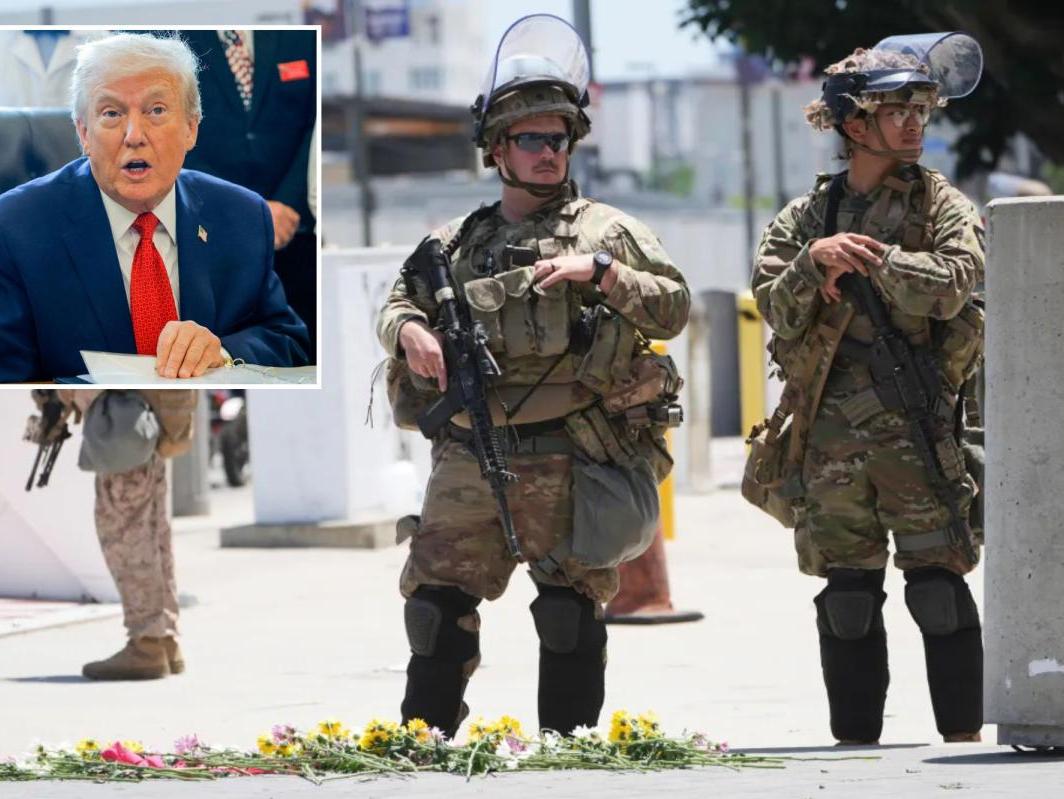
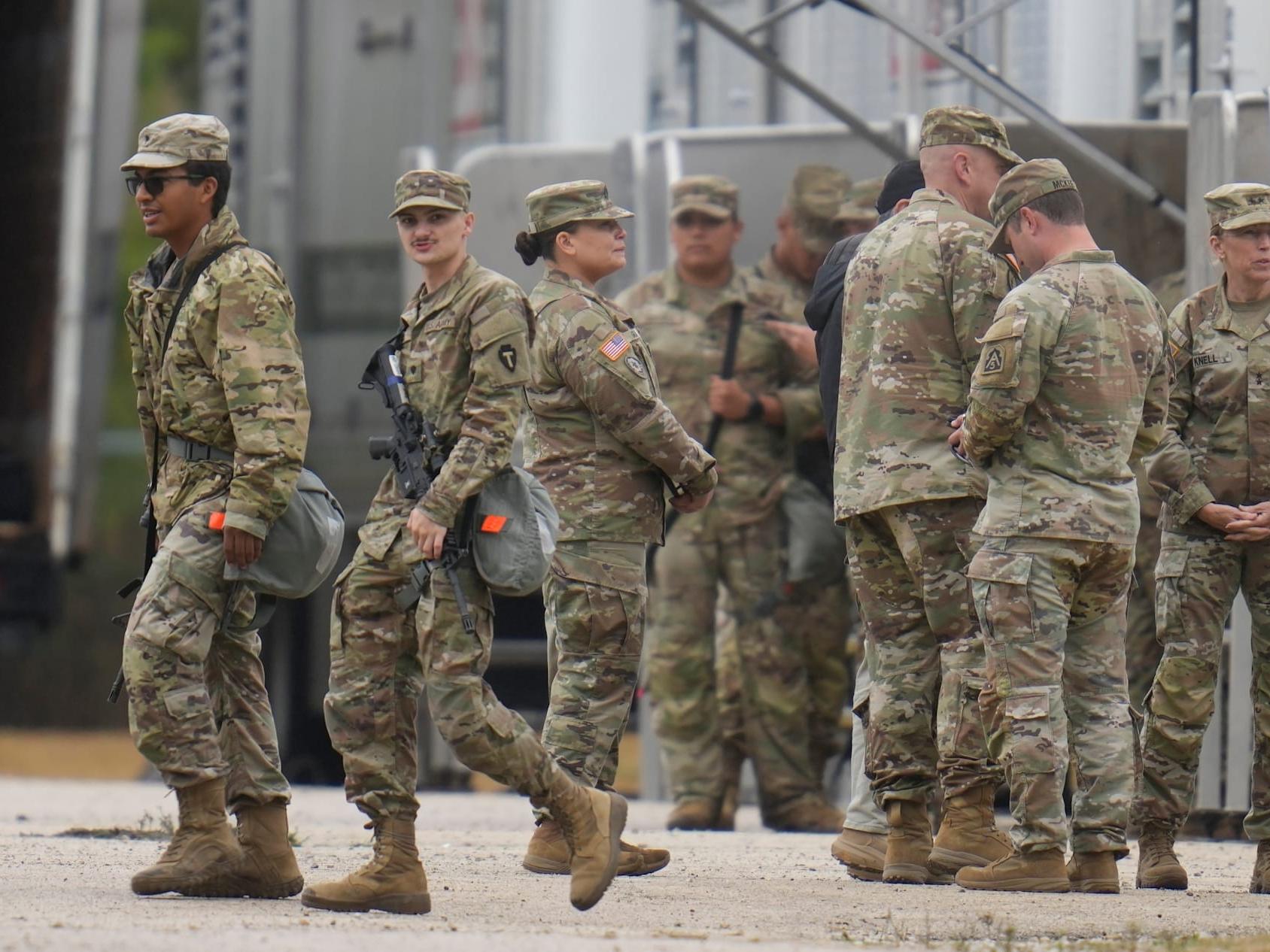
Politics / International
The Trump administration has launched a comprehensive assault on the U.S. asylum system, with Immigration and Customs Enforcement (ICE) attorneys requesting immigration judges nationwide to dismiss thousands of active asylum cases without reviewing their merits, according to internal government documents obtained by CBS News . The strategy involves so-called 'pretermit' motions that would nullify pending asylum applications, enabling deportation without appeal to third countries such as Guatemala, Honduras, Ecuador, and Uganda
.
Immigration lawyers argue the strategy aims to dismantle the asylum system by forcing applicants to withdraw their cases under threat of deportation to unfamiliar countries . 'If you want to apply for asylum, you're being forced to do so in a country you've never been to... You just have to give up and go back to your country or go somewhere else,' Houston-based immigration attorney Paúl Pirela told France 24
.
Simultaneously, the administration has maintained its enhanced voluntary departure incentive program, offering $3,000 plus free flights to undocumented immigrants who self-deport through the CBP Home app by Dec. 31 . The program has drawn both bipartisan support and controversy, with Democratic presidential candidate Jason Palmer and Republican strategist Aaron Evans both endorsing the policy as fiscally responsible, noting that traditional deportations cost approximately $17,000 per person
.
The administration's broader immigration crackdown has included canceling Temporary Protected Status for over 1 million immigrants from 11 countries—Afghanistan, Burma, Cameroon, Haiti, Honduras, Nepal, Nicaragua, Syria, Venezuela, and Yemen—marking the most rapid mass revocation of legal immigration status in U.S. history . The largest affected groups are Venezuelans (605,000) and Haitians (330,000)
.
A leaked 60 Minutes report that was abruptly pulled from broadcast in December revealed harrowing testimonies from migrants deported to El Salvador's high-security CECOT prison, describing beatings, torture, sexual abuse, and broken bones . 'When you get there, you already know you're in hell. You don't need anyone to tell you,' one Venezuelan migrant stated
. CBS News defended pulling the report, citing the Trump administration's refusal to participate and a need for stronger inclusion of the administration's perspective
.
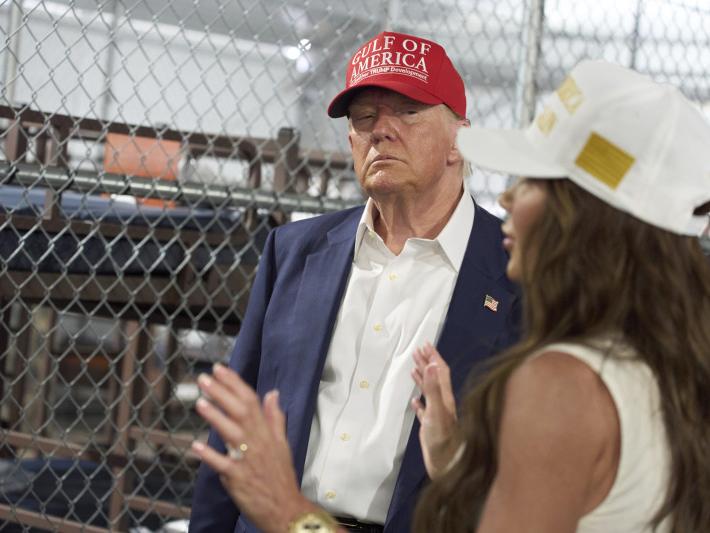
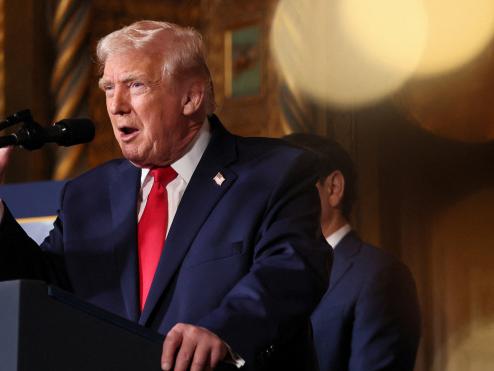
Politics
The U.S. Department of Justice released nearly 30,000 additional pages of Jeffrey Epstein-related documents Dec. 23, marking another significant disclosure in the ongoing investigation . The files contain extensive references to President Donald Trump, including confirmation from a Jan. 7, 2020, federal prosecutor's email that he flew on Epstein's private jet at least eight times between 1993 and 1996, with Ghislaine Maxwell present on at least four of those flights
. One flight reportedly included only Trump, Epstein, and a 20-year-old woman whose identity was redacted
.
Among the most controversial materials released was a handwritten letter allegedly from Epstein to convicted sex offender Larry Nassar, claiming Trump 'shares our love for young, nubile girls' and enjoyed 'grabbing' young women . However, the DOJ immediately confirmed the letter was fraudulent, citing multiple inconsistencies: it was postmarked three days after Epstein's death on Aug. 10, 2019, bore a Virginia postmark instead of New York where Epstein was imprisoned, and lacked proper prison documentation
. The department labeled many claims about Trump as 'false and sensationalist,' stating they were submitted to the FBI just before the 2020 election and lacked credibility
.
The DOJ's handling of the release has drawn significant criticism for procedural issues and perceived bias. Documents were initially published, then temporarily withdrawn from public access before being republished, raising questions about transparency . Critics have noted the department's defensive tone regarding Trump contrasts sharply with the neutral language used for other figures such as Bill Clinton in previous releases
. The department also faced criticism for excessive redactions beyond legal requirements and missing the congressionally mandated deadline for full disclosure
.
The release followed political pressure from within Trump's own Republican Party, leading to the passage of the Epstein Files Transparency Act mandating full disclosure . Trump, who initially opposed the release, later supported the legislation after facing strong congressional backing
. Critics, including Senate Minority Leader Chuck Schumer, continue to demand transparency regarding 10 unidentified 'co-conspirators' mentioned in FBI emails and question why no additional prosecutions have followed
. Ghislaine Maxwell remains the only person convicted in connection with Epstein's crimes
.
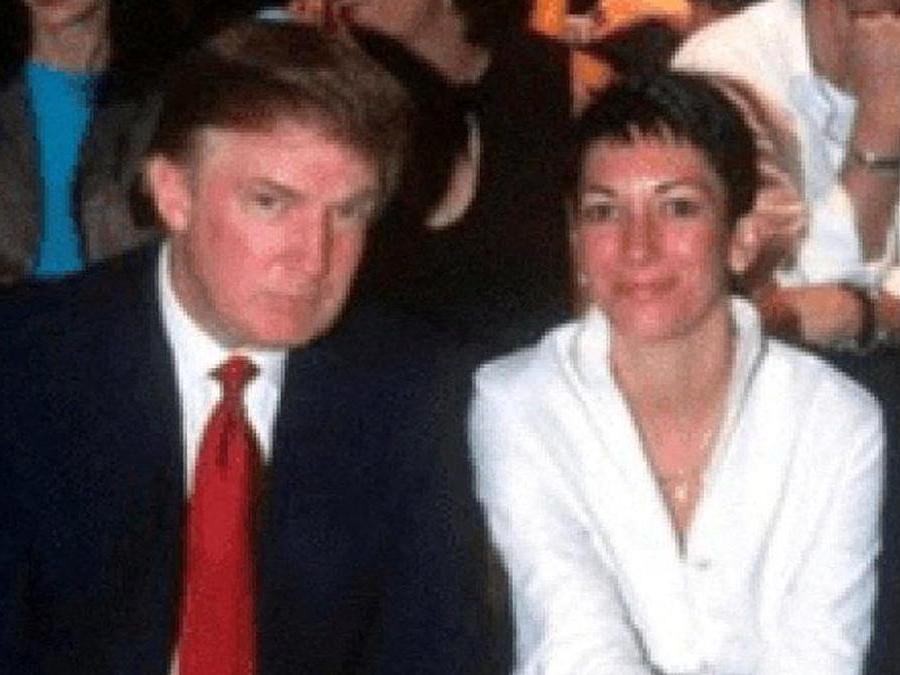
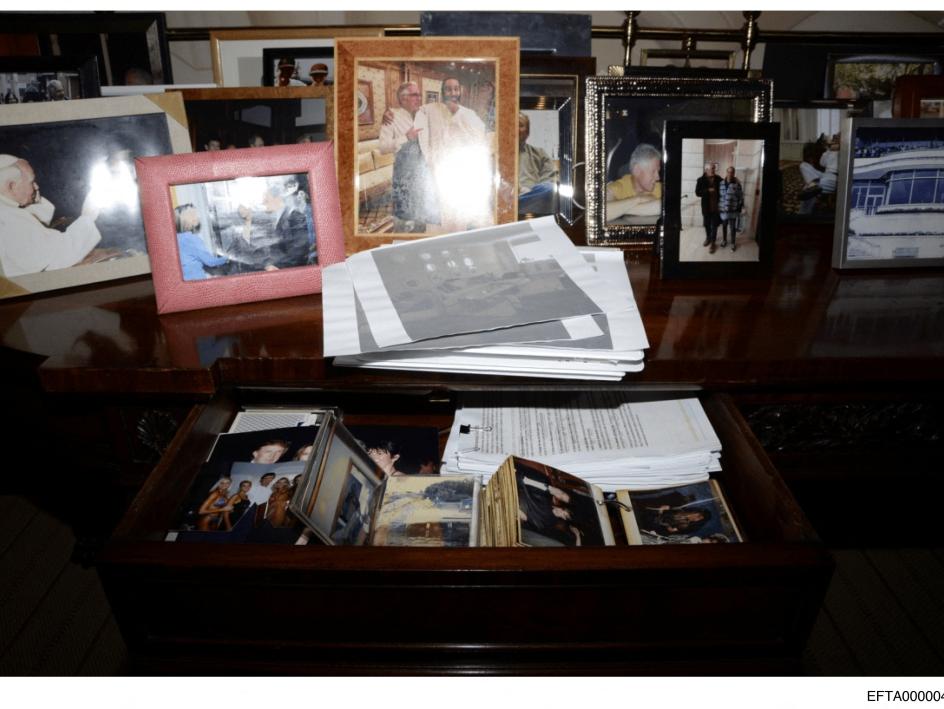
International
The death toll from the Mexican Navy aircraft crash near Galveston, Texas, has been officially confirmed at five people, including a 2-year-old burn patient who was being transported for medical treatment . The King Air ANX 1209 crashed Dec. 22 during a humanitarian mission coordinated with the Michou and Mau Foundation, which specializes in transporting Mexican children with severe burns to U.S. hospitals for treatment
.
Of the eight people aboard - four naval crew members and four civilians - two survived and were rescued by local residents, including a police officer and yacht captain who quickly arrived at the crash scene . One person remains missing despite ongoing search operations by the U.S. Coast Guard using dive teams, drones, and patrol units
. The aircraft had departed from Mérida International Airport in Yucatán at 18:46 GMT and lost contact at 21:01 GMT over Galveston Bay near Scholes International Airport
. Dense fog with visibility reduced to approximately 800 meters was reported at the time of the crash, which may have contributed to the accident
.
Mexican authorities are coordinating with the Mexican Consulate General in Houston to provide support to victims' families, while an investigation into the cause of the accident continues . The Mexican Navy has expressed condolences to the families of the deceased and pledged to conduct a thorough investigation in collaboration with U.S. authorities
.


British comedian and actor Russell Brand faces two additional sexual offense charges filed by the Metropolitan Police on Dec. 23, bringing the total number of allegations against him to seven across six women . The new charges include one count of rape and one count of sexual assault involving two different women, with the alleged rape occurring between Feb. 7 and March 1, 2009, and the sexual assault between Aug. 31 and Dec. 1, 2009
.
These charges add to five previous charges filed in April 2025, which included two counts of rape, one count of indecent assault, and two counts of sexual assault involving four other women . The earlier allegations stem from incidents between 1999 and 2005, including claims of rape during a Labour Party conference in Bournemouth and oral rape in men's toilets at a television facility
.
Brand, 50, has pleaded not guilty to all previous charges and is scheduled to appear at Westminster Magistrates' Court on Jan. 20, 2026, to address the new allegations . A trial for the original five charges is set to begin at Southwark Crown Court on June 16, 2026, and is expected to last four to five weeks
.
The investigation began in September 2023 following joint reports by The Sunday Times, The Times, and Channel 4's Dispatches program . Detective Chief Inspector Tariq Farooqi confirmed that all complainants are receiving support from specially trained officers and urged anyone with information to come forward
.
Brand has denied all allegations, stating in social media posts that he has 'never been a rapist' and 'never engaged in non-consensual activities,' while acknowledging he was 'a fool' and 'an idiot' in his youth . The Crown Prosecution Service authorized the new charges following the ongoing investigation
.
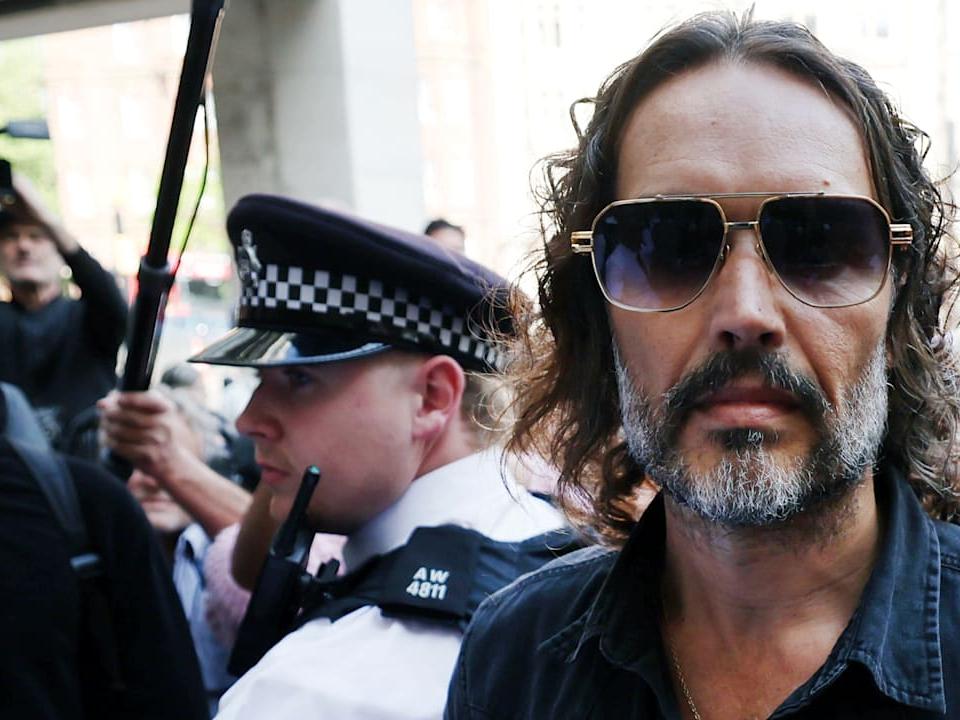

Entertainment
Video footage of the fatal crash that killed Call of Duty co-creator Vince Zampella has emerged and been widely circulated online, showing the Ferrari 296 GTS crashing into a concrete barrier and bursting into flames . The graphic footage, captured by bystanders and witnesses, shows the red Ferrari speeding out of a tunnel before losing control and crashing on the Angeles Crest Highway Dec. 21
. One source described the video as containing "graphic footage" that has been labeled as potentially shocking
.
The 55-year-old gaming industry pioneer died at the scene after being trapped in the burning vehicle, while his passenger was ejected from the car and died later from injuries . The California Highway Patrol confirmed the crash occurred around 12:45 p.m. in the San Gabriel Mountains north of Los Angeles
. The cause of the accident remains under investigation, though the road is reportedly known for illegal car stunts
.
Electronic Arts, which acquired Zampella's studio Respawn Entertainment in 2017, released statements calling him a "visionary creator" whose influence shaped modern interactive entertainment . Zampella co-founded Infinity Ward in 2002 and helped create Call of Duty in 2003, which has over 100 million monthly active players
. He also led development of the record-breaking Battlefield 6 and oversaw creation of Titanfall, Apex Legends, and the Star Wars Jedi series
. Zampella is survived by three children from his marriage to Brigitte Zampella, who filed for divorce in 2015
.
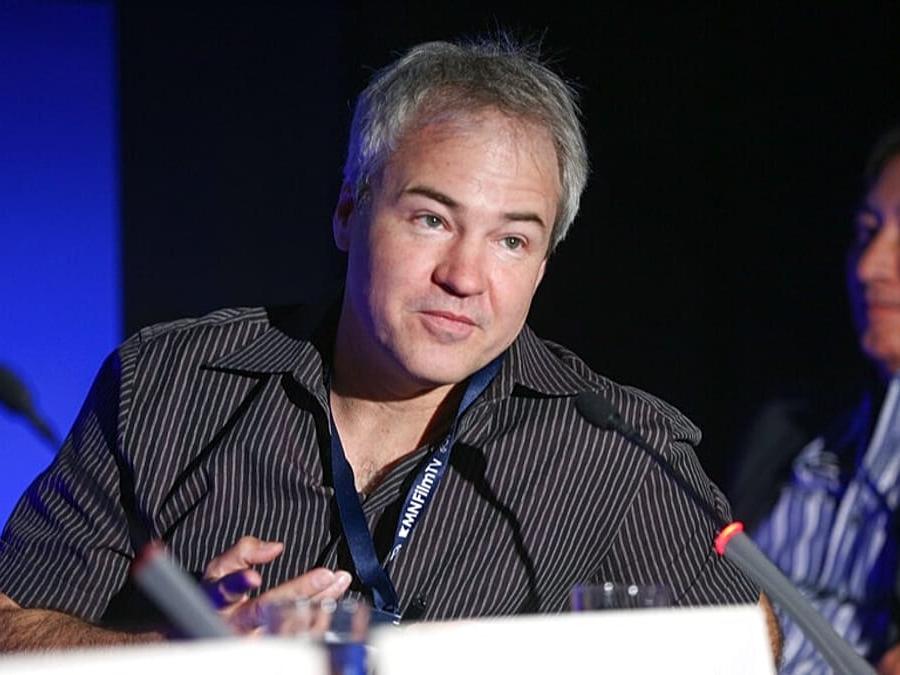
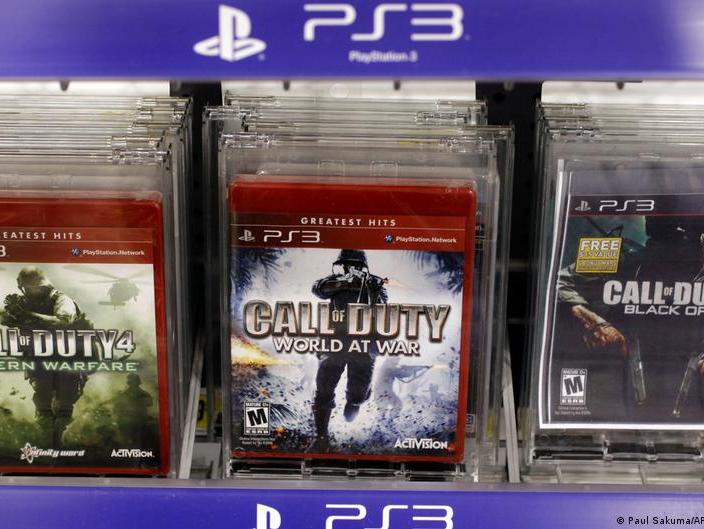
Politics / International
U.S. President Donald Trump announced Dec. 23 that America will permanently retain all seized Venezuelan oil tankers and their cargo, declaring 'We will keep it. It may be used for strategic reserves. We are also keeping the ships' . Trump confirmed the U.S. Coast Guard is actively pursuing a third oil tanker, the Bella 1, in international waters near Venezuela
. The vessel sent over 75 distress signals while being pursued approximately 460-500 kilometers northeast of Antigua and Barbuda
. This follows the seizure of two previous tankers - the Centuries and Skipper - carrying a combined 3.8 million barrels of crude oil
.
Trump escalated his threats against Venezuelan President Nicolás Maduro, reiterating 'If he makes it hard, it will be the last time he can do it' and suggesting it would be 'smart' for Maduro to resign . The president announced plans to build two new warships as part of a 'Golden Fleet' modernization project, describing them as 'the fastest, largest, and deadliest ever built' with construction beginning 'almost immediately' and delivery expected in two and a half years
. Trump emphasized U.S. naval superiority, claiming 'We have the biggest navy we've ever had, and by far the biggest we've ever had in South America'
.
The U.S. has deployed its largest military presence in the Caribbean in three decades, including approximately 15,000 troops, the USS Gerald R. Ford aircraft carrier, and the first deployment of F-35A Lightning II fighter jets to the region . Images released by U.S. Southern Command showed approximately 2,200 Marines conducting live-fire drills and tactical maneuvers
. Since September, U.S. operations have resulted in at least 104 deaths across 28 attacks on suspected drug trafficking vessels, with Venezuela reporting these as 'executions without trial'
.
International condemnation intensified, with Russian Foreign Minister Sergei Lavrov expressing 'firm solidarity' with Venezuela and warning of regional destabilization . China condemned the seizures as violations of international law and opposed U.S. 'unilateral hegemony'
. Venezuela has called for an emergency UN Security Council session and sent diplomatic notes to 194 countries condemning what it calls U.S. 'piracy and aggression'
. In response to Trump's threats, Maduro criticized the U.S. president, saying he would be 'better occupied' addressing internal U.S. problems rather than threatening Venezuela
.
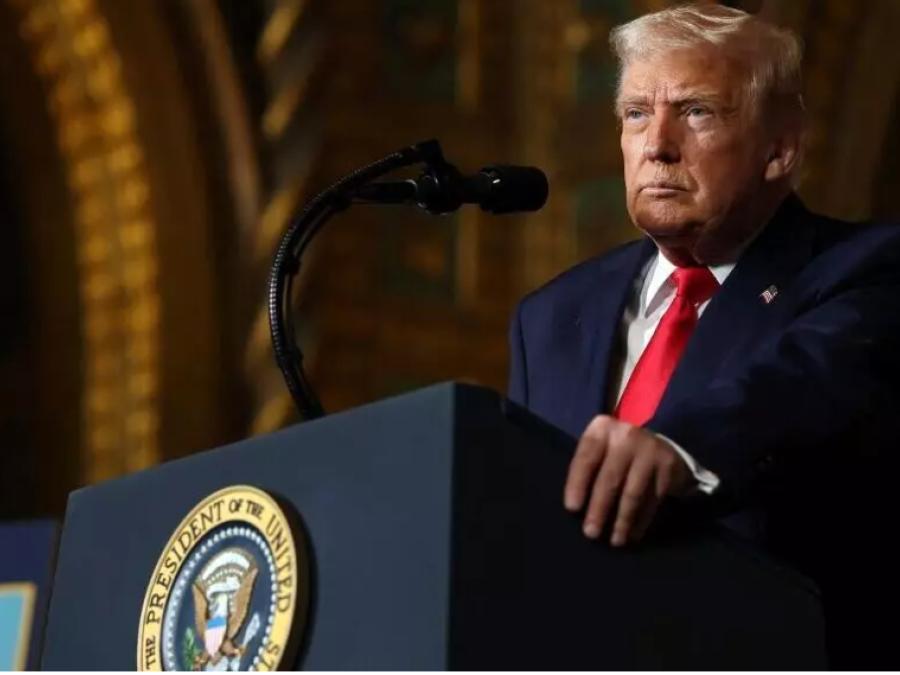

Finance / Economy
The S&P 500 reached a new all-time high of 6,909.79 on Dec. 23, marking its 38th record closing high of the year, as U.S. stock markets surged following stronger-than-expected third-quarter GDP growth of 4.3% that significantly exceeded forecasts of 3.3% . The Dow Jones gained 0.16% to 48,442.41, while the Nasdaq rose 0.57% to 23,561.84, as investors embraced the robust economic data showing the fastest growth pace in two years
.
The GDP surge was driven primarily by consumer spending increases of 3.5%, along with growth in exports and government expenditures, according to the U.S. Commerce Department . Despite initial market concerns that strong economic performance might prompt the Federal Reserve to delay interest rate cuts, investors ultimately viewed the data positively as it reinforced confidence in sustained corporate earnings growth through 2026
.
Precious metals continued their record-breaking rally alongside equities, with gold reaching new highs above $4,497-$4,530 per ounce and silver surpassing $70 per ounce for the first time, while copper hit record levels at $12,159.50 per ton driven by demand from energy transition and digital infrastructure . The CME FedWatch tool indicates markets still expect two rate cuts by the end of 2026, with probability rising to 33%, though expectations for a January 2026 cut dropped to just 15.5%
.
President Trump expressed concerns on Truth Social, urging the new Federal Reserve Chair not to cut rates 'without reason' amid strong market performance, while Treasury Secretary Scott Bessent suggested the Fed reconsider its 2% inflation target . Notable individual stock movements included Nvidia surging 3% on optimism over potential H200 chip shipments to China by February 2026, while Novo Nordisk jumped over 8% after FDA approval for the world's first oral version of its obesity drug Wegovy
.
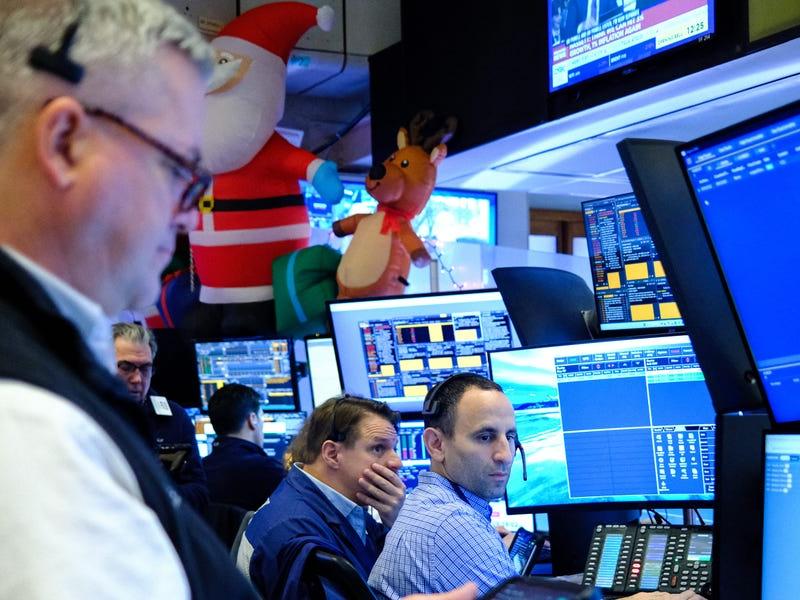
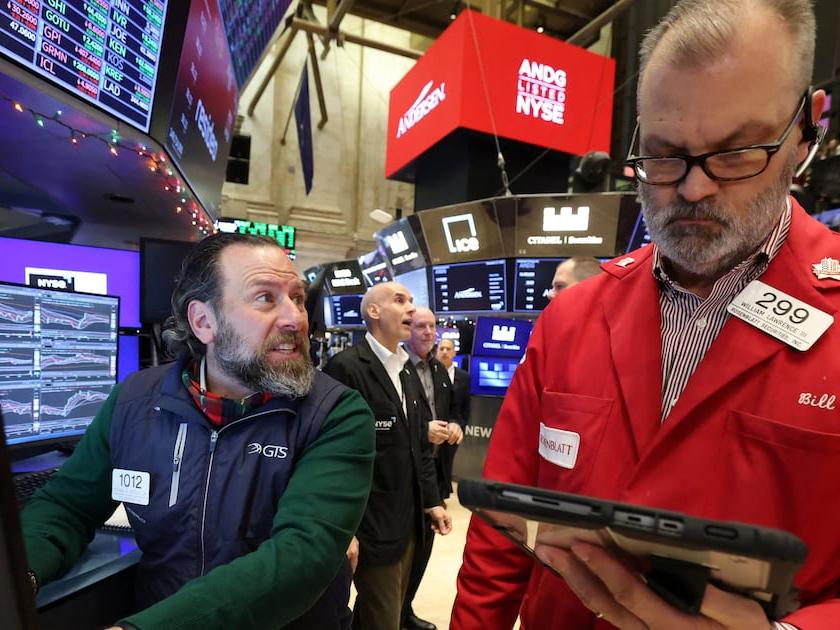
International / Politics
Venezuela's National Assembly passed emergency legislation Dec. 23 criminalizing "piracy, blockades, and other international illegal acts" with penalties up to 20 years in prison and fines reaching €1 million ($6.5 million), directly responding to recent U.S. seizures of Venezuelan oil tankers . The law, which now awaits President Nicolás Maduro's signature, specifically targets activities that hinder navigation and commerce and mandates the executive branch to establish protections for businesses operating with Venezuela
.
The legislation comes as tensions reached new heights at the Dec. 23 UN Security Council emergency meeting, where Venezuela's Ambassador Samuel Moncada accused the U.S. of conducting "the largest extortion in history" and seeking to impose colonial control by turning back the clock "200 years" . U.S. Ambassador Mike Waltz defended the naval blockade as necessary to cut funding to the "Cartel de los Soles," which Washington designates as a terrorist organization allegedly led by Maduro, though experts question whether it represents a formal cartel or merely corrupt networks
.
Russia and China delivered sharp criticism of U.S. actions, with Russian Ambassador Vassily Nebenzia calling the blockade "flagrant aggression" that violates "all fundamental norms of international law" and warning of "catastrophic consequences" . China's representative Sun Lei condemned U.S. "unilateralism and intimidation," with both nations characterizing American behavior as "cowboy conduct"
. The U.S. has now seized multiple Venezuelan oil tankers, including the Skipper and Centuries, with reports indicating around 40 tankers currently anchored near Venezuela's coast
.
President Maduro claimed "overwhelming support" from the UN Security Council and labeled U.S. vessel seizures as "piracy," vowing that "no one will defeat Venezuela" . The escalation has resulted in over 100 deaths from U.S. military operations since September, with Trump threatening to extend operations to Venezuelan territory
.
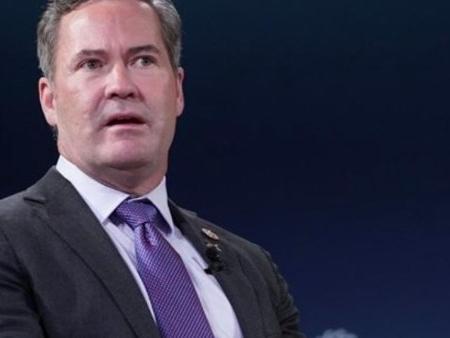
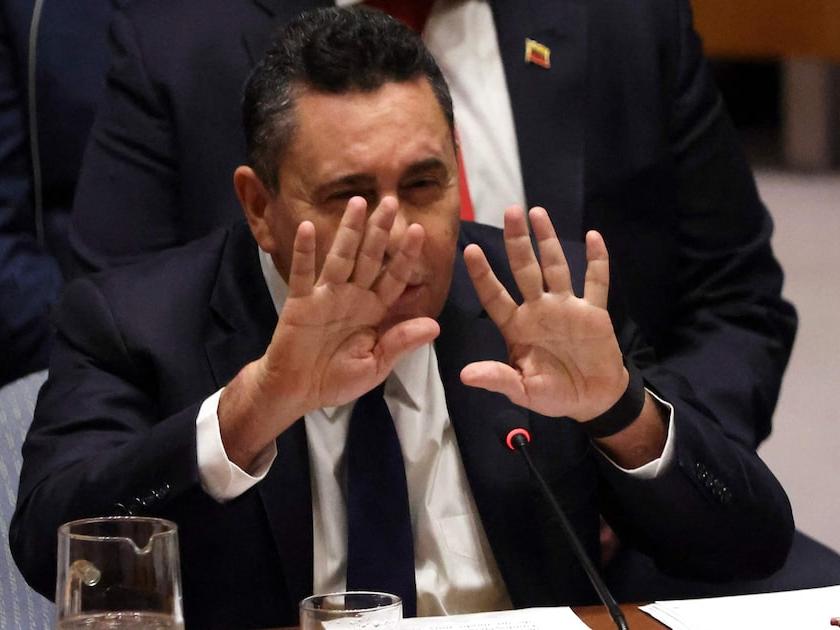
Sports
Egypt's national football team faces a pivotal Group B clash against South Africa on Friday, Dec. 27, at 5:00 PM Cairo time at Adrar Stadium in Agadir, Morocco . Both teams enter the match level on three points after opening victories, with Egypt defeating Zimbabwe 2-1 and South Africa beating Angola 2-1, making this encounter crucial for securing qualification to the Round of 16
.
The match carries significant historical weight, as Egypt seeks revenge for their humiliating 1-0 elimination by South Africa in the 2019 Africa Cup of Nations Round of 16, when Percy Tau scored the decisive goal . The head-to-head record favors Egypt, who won 1-0 in the 1996 group stage and claimed a 2-0 victory in the 1998 final in Burkina Faso to secure their fourth continental title
. South Africa's only triumph in the rivalry came in that painful 2019 quarterfinal defeat
.
Coach Hossam Hassan and his technical staff are urgently addressing the team's finishing problems after missing several clear scoring opportunities against Zimbabwe . A senior source revealed that Hassan is focusing on improving offensive effectiveness and better exploiting scoring chances ahead of the crucial clash, as the team ultimately relied on late goals from Omar Marmoush and Mohamed Salah to secure victory
. International media continues to praise Salah's decisive 91st-minute winner, with outlets describing him as the 'man of big moments' and highlighting his partnership with Marmoush in turning matches around
.
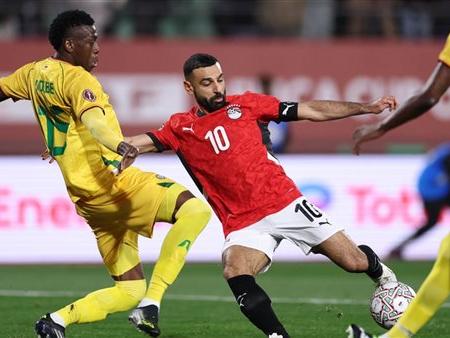
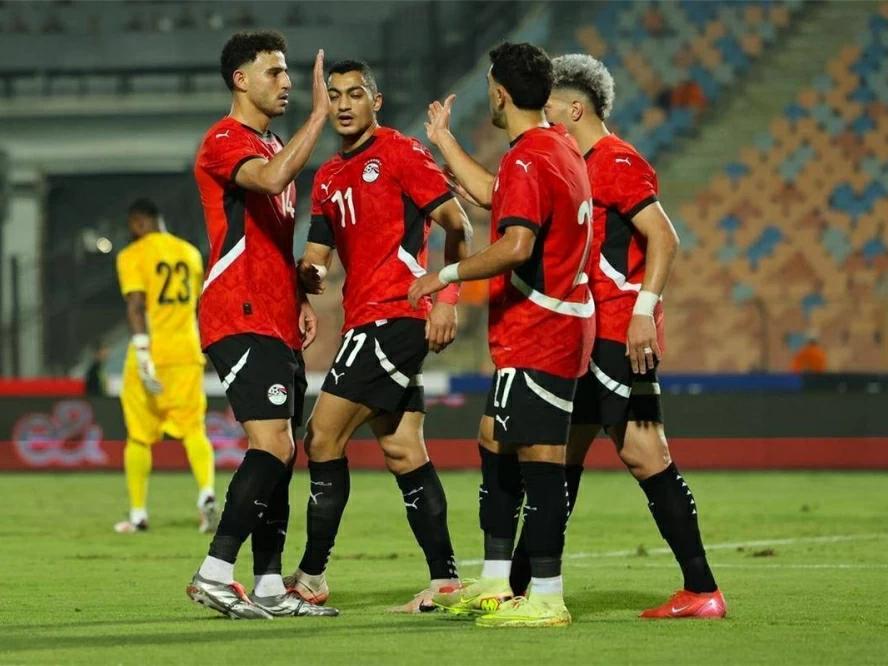
International / Politics
European leaders have rallied in unprecedented unity behind Denmark following President Trump's appointment of Louisiana Governor Jeff Landry as Special Envoy to Greenland, marking a significant escalation in the diplomatic crisis. French President Emmanuel Macron led the European response, declaring that 'Greenland belongs to its people' and expressing 'full solidarity with Copenhagen' . French Foreign Minister Jean-Noël Barrot reinforced this stance, emphasizing that Greenland is a 'European territory' and belongs to the Greenlanders
. EU Commission President Ursula von der Leyen and Spanish Prime Minister Pedro Sánchez both reaffirmed that 'territorial integrity and sovereignty are foundational principles of international law'
.
The crisis has reached alarming new heights, with Denmark's defense intelligence agency labeling the United States as a 'potential security threat' for the first time . Danish Foreign Minister Lars Løkke Rasmussen firmly rejected any U.S. demands, stating that Denmark will not comply with transferring Greenland to the United States and establishing what he called a 'firm red line'
. Trump has refused to rule out the use of military force to acquire Greenland
, prompting analysts to warn that a U.S. invasion would collapse NATO and end Trump's prospects for international legitimacy
.
Greenland's Prime Minister Múti Fredriksen expressed deep sorrow over Trump's characterization of Greenland as merely a security issue, emphasizing that it diminishes the nation's 'rich history, strong culture, and vibrant democracy' . He thanked international partners for their clear support of Greenland's sovereignty and democratic institutions, stating 'This confirms that we are not alone'
. Trump continues to justify his position by claiming that Russian and Chinese naval vessels are present along Greenland's coasts and that Denmark lacks sufficient military capability to defend the territory
.
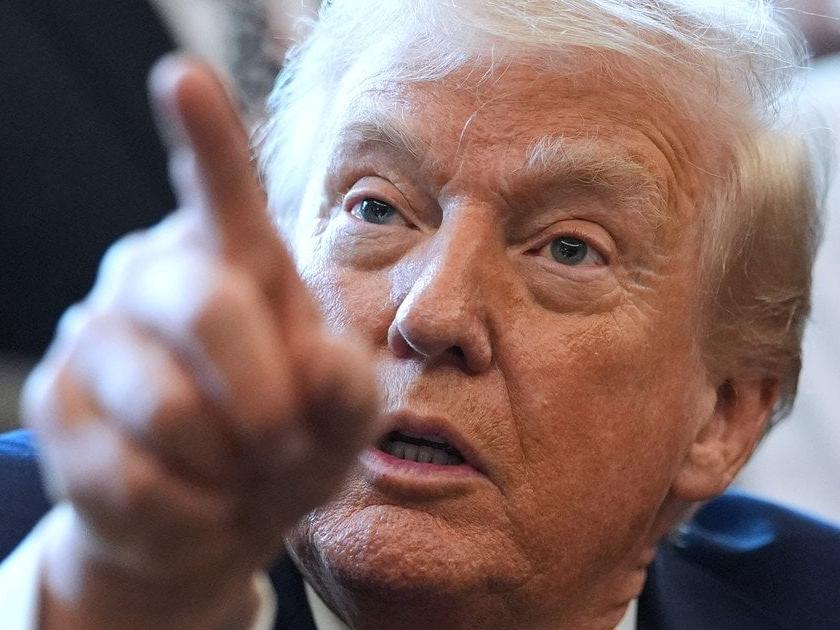
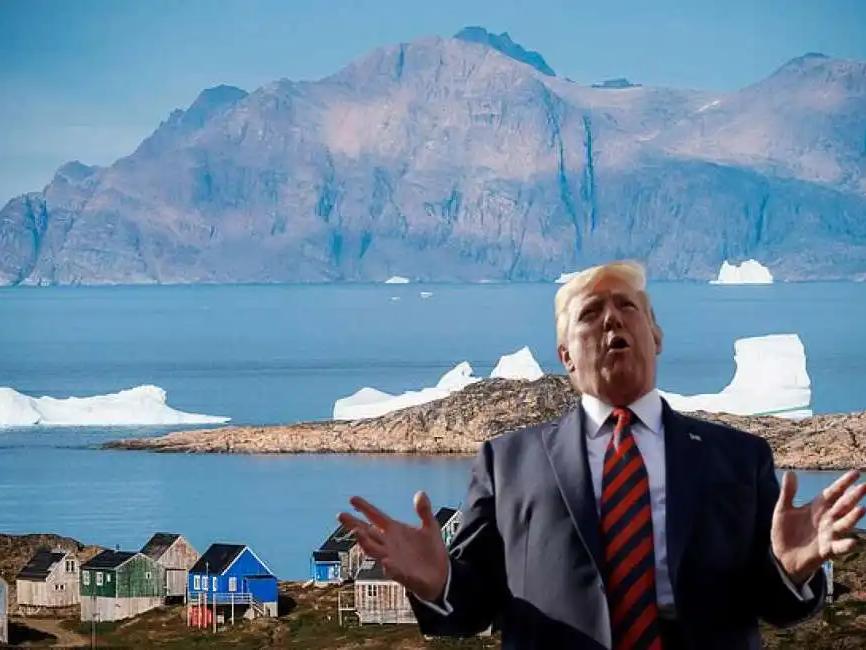
Politics / International / Business
President Donald Trump expanded his 'Golden Fleet' initiative Dec. 22 by announcing a major international partnership with South Korean defense giant Hanwha, which will invest over $5 billion in Philadelphia's Philly Shipyard to construct frigates for the U.S. Navy . Speaking from his Mar-a-Lago estate, Trump described Hanwha as 'a great company' and emphasized that the once-closed shipyard would reopen to work with both the Navy and private firms
. The partnership represents a significant development in Trump's broader 'MASGA' (Making America Shipbuilding Great Again) initiative
.
The announcement provided new details about the controversial 'Trump-class' warships, with the first vessel now identified as either USS Defiant or 'Dreadnought,' depending on the source . Trump claimed the 30,000-40,000 ton vessels would be '100 times more powerful' than existing warships and equipped with hypersonic weapons, electromagnetic railguns, cruise missiles, and laser systems
. The president emphasized his personal involvement in the design process, citing his 'aesthetic sensibilities' and criticizing past naval designs as unattractive
.
However, the ambitious timeline and costs face significant skepticism from defense experts. Bryan Clark from the Hudson Institute noted that new shipyards needed for accelerated construction would take about 10 years to deliver, while Mark Cancian of the Center for Strategic and International Studies estimated costs at $10-12 billion per ship . The project also breaks longstanding naval tradition by naming warships after a sitting president, sparking debate over the politicization of military assets
. Critics point to recent naval failures, including the canceled Constellation-class frigate program and delays in the Columbia-class submarine project, as evidence of systemic shipbuilding challenges
.
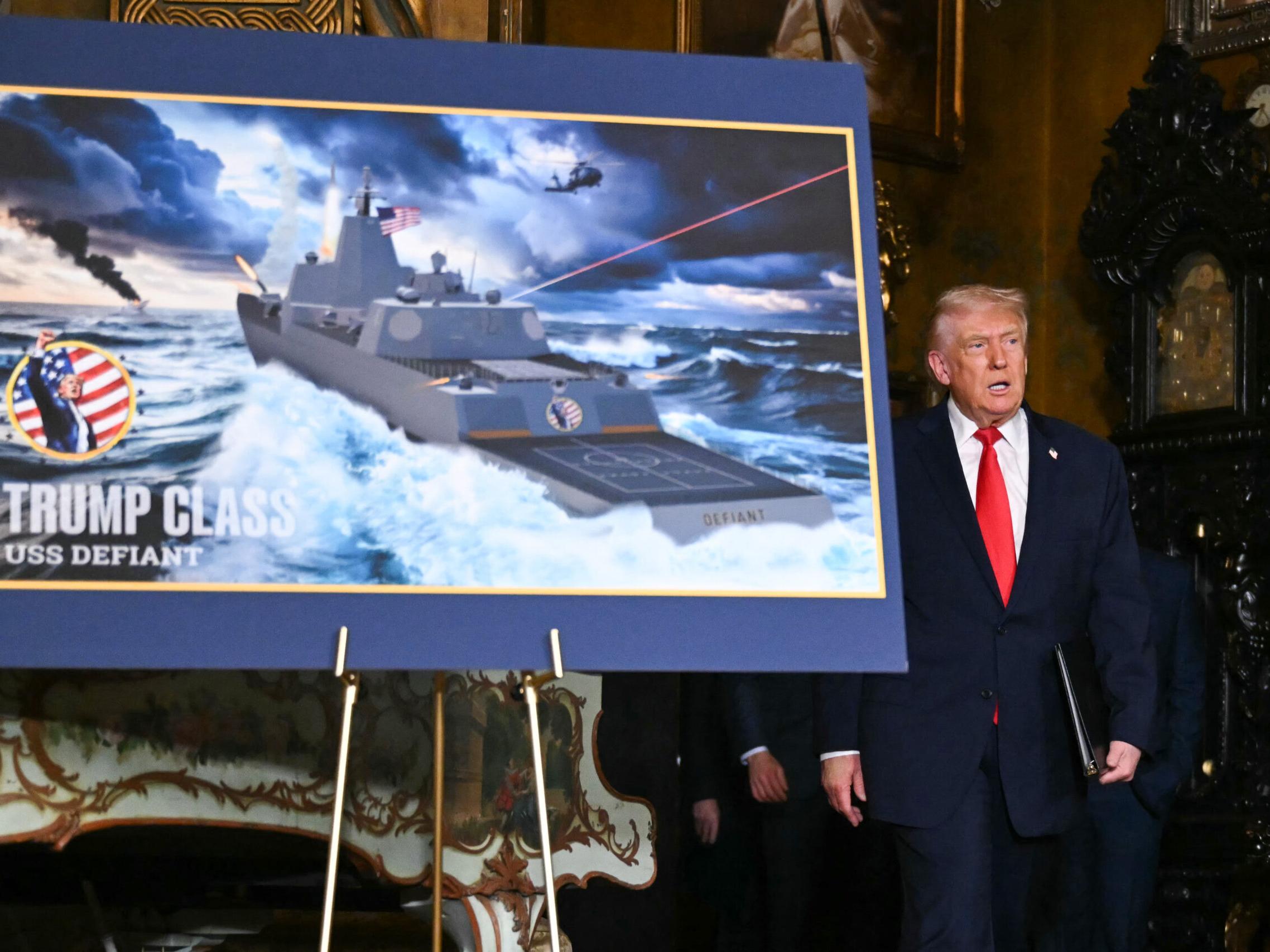
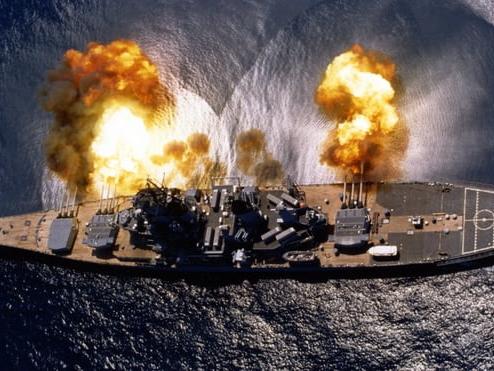
International / Politics
Ukraine escalated its asymmetric warfare campaign against Russia Dec. 21-24, conducting covert operations that included infiltrating Russia's Lipetsk Air Base and destroying two aircraft - a Su-27 and Su-30 - causing an estimated $100 million in damage . On the same day, Ukrainian operatives assassinated Russian General Sergey Salvarov, head of the Armed Forces' combat training, with a car bomb placed under his vehicle in Moscow
. This marked the latest in a series of high-profile assassinations targeting Russian military leadership in the capital.
The covert operations occurred amid Russia's continued massive aerial bombardment of Ukraine, with over 650 drones and more than 30 missiles striking 13 Ukrainian regions Dec. 23-24, killing at least three civilians including a 4-year-old child in Zhytomyr Oblast . The attacks caused emergency power outages across the country and targeted energy infrastructure
. In response to Ukrainian drone strikes on Russian territory, Moscow's air defense systems shot down multiple Ukrainian drones targeting the capital
. Russian forces also intensified ground attacks, striking Zaporizhzhia with guided aerial bombs that injured two people and damaged residential buildings
. Ukrainian military officials confirmed the withdrawal from Siversk in Donetsk Oblast, stating the move was necessary 'to save soldiers' lives and maintain combat effectiveness' amid overwhelming Russian numerical superiority
.
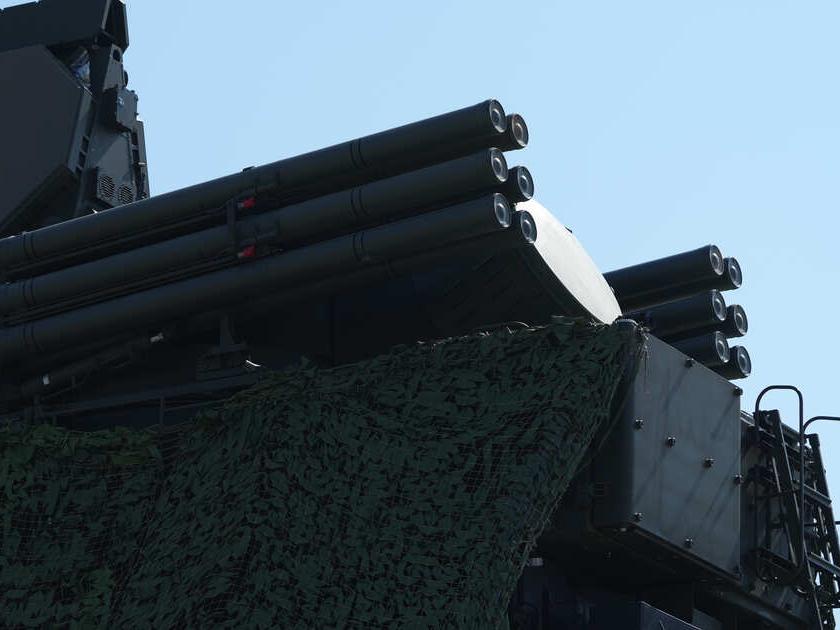
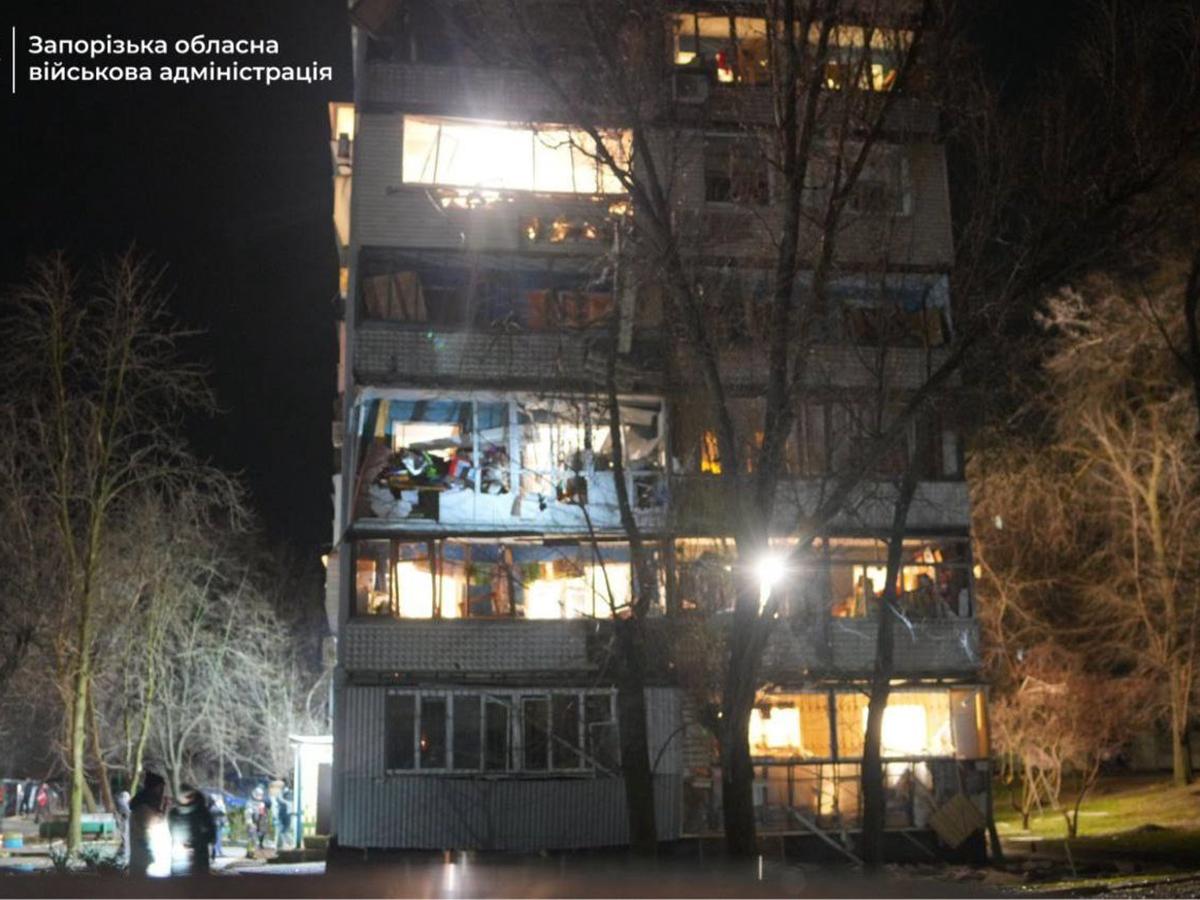
Business / Technology
European car sales extended their winning streak in November 2025, marking the fifth consecutive month of year-on-year growth as electric vehicles fundamentally reshaped the automotive landscape . Total new vehicle registrations across the EU, UK, and European Free Trade Association rose 2.4% to 1.08 million units, with electric and hybrid vehicles now commanding 65.6% of the market—a dramatic increase from 56% in August 2024
.
The most striking development was the emergence of Chinese automaker BYD as a major European player, with sales surging 221.8% year-on-year to reach 21,133 units in November and capturing a 2% market share . This growth trajectory continued a trend since the European Automobile Manufacturers Association began tracking BYD's data in July 2025, with the company selling 159,869 vehicles across Europe from January to November
.
In stark contrast, Tesla faced mounting challenges as European sales declined 11.8% to 22,801 units, reducing its market share from 2.5% to 2.1% year-on-year . The decline was attributed to intensifying competition from both European and Chinese manufacturers, as well as reputational damage linked to CEO Elon Musk's political activities earlier in 2025, which reportedly alienated a significant portion of Tesla's customer base
.
Battery electric vehicles reached remarkable penetration rates across the region, capturing 21% market share in the EU, 26% in the UK, and an extraordinary 98% in Norway . The growth was particularly pronounced in major markets including Germany, Italy, and Spain, where BEV registrations increased substantially
. Plug-in hybrid vehicles led the growth surge with a 38.4% increase, while conventional hybrids rose 4.2% and BEVs jumped 44.1%
.
Traditional automakers showed mixed performance, with Volkswagen and Renault posting gains of 4.1% and 3% respectively, while Stellantis declined 2.7% . However, Volkswagen Group made a significant strategic reversal, terminating its European electric vehicle direct-to-consumer sales strategy and reverting to traditional dealer networks due to dealer pressure over low profitability and pricing inflexibility
.
The transformation of European automotive preferences was evident in the sharp decline of internal combustion engines, with gasoline vehicles dropping 18.6% year-to-date to a 27% market share, while diesel vehicles fell 24.4% to just 9% of the market . Despite the positive momentum, the European Automobile Manufacturers Association noted that overall sales volumes remain significantly below pre-pandemic levels, with automakers continuing to face challenges from Chinese competition, U.S. import tariffs, and regulatory pressures
.
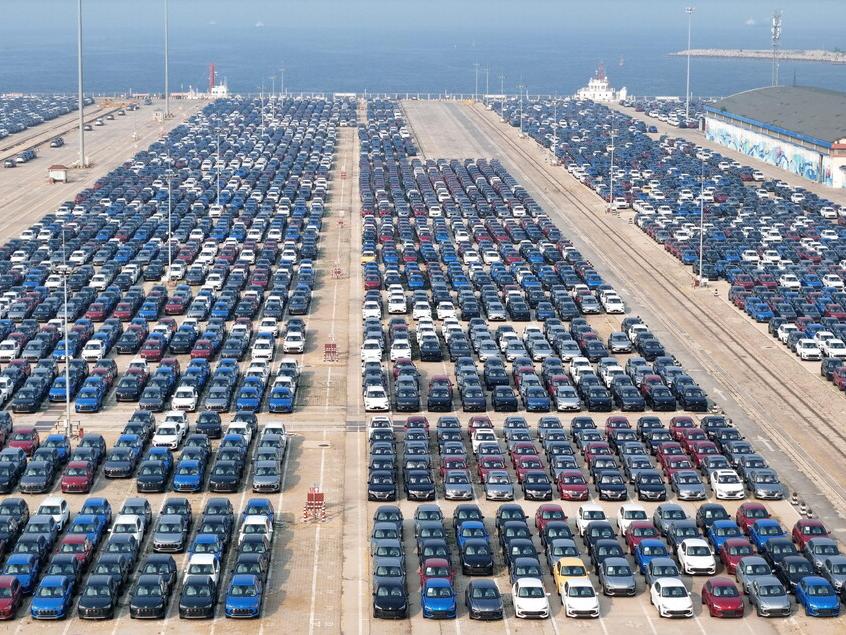
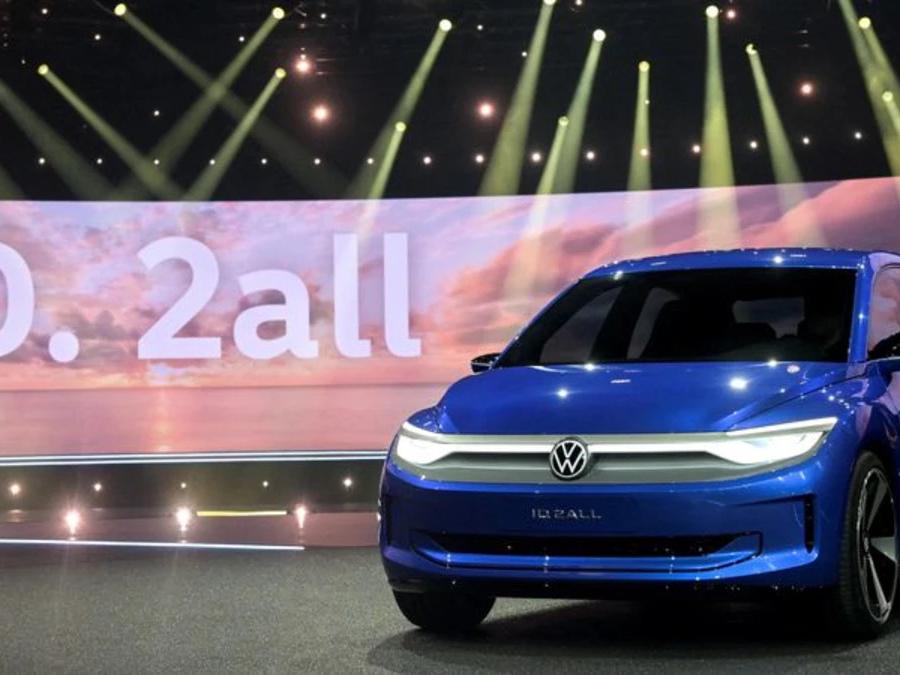
International / Politics
Russia escalated its aerial warfare tactics Dec. 23 with a coordinated assault using 635 drones and 38 missiles across 13-21 Ukrainian regions, employing upgraded Shahed drones equipped with mesh networking for continuous signal transmission and cameras for enhanced navigation . The attack killed at least three people, including a four-year-old child in Zhytomyr Oblast, and left western regions like Rivne, Ternopil, and Khmelnytskyi almost completely without electricity
.
Ukrainian military analysts identified a deliberate shift in Russian strategy, with the assault primarily targeting western Ukraine to stretch air defense capabilities and exploit vulnerabilities through routes including the Chernobyl exclusion zone and Cherkasy Oblast . General Nikolai Malomuzh, former head of Ukraine's Foreign Intelligence Service, noted that Russia has surpassed 600 Shahed drones per attack and may launch up to 1,000 daily, using sequential targeting patterns—eastern, central, then western regions—to complicate interception efforts
.
The timing proved particularly provocative, occurring during ongoing U.S.-led peace negotiations in Miami and just before Christmas, prompting Ukrainian President Volodymyr Zelenskyy to condemn it as demonstrating Russia's refusal to stop killing . The assault forced Ukraine's nuclear power plants to reduce generation due to attacks on power supply systems, violating nuclear safety standards according to acting Energy Minister Oleksiy Nechayev
. DTEK, Ukraine's largest private energy provider, reported this marked the seventh major strike on its facilities since October and the 220th attack since Russia's full-scale invasion began
.
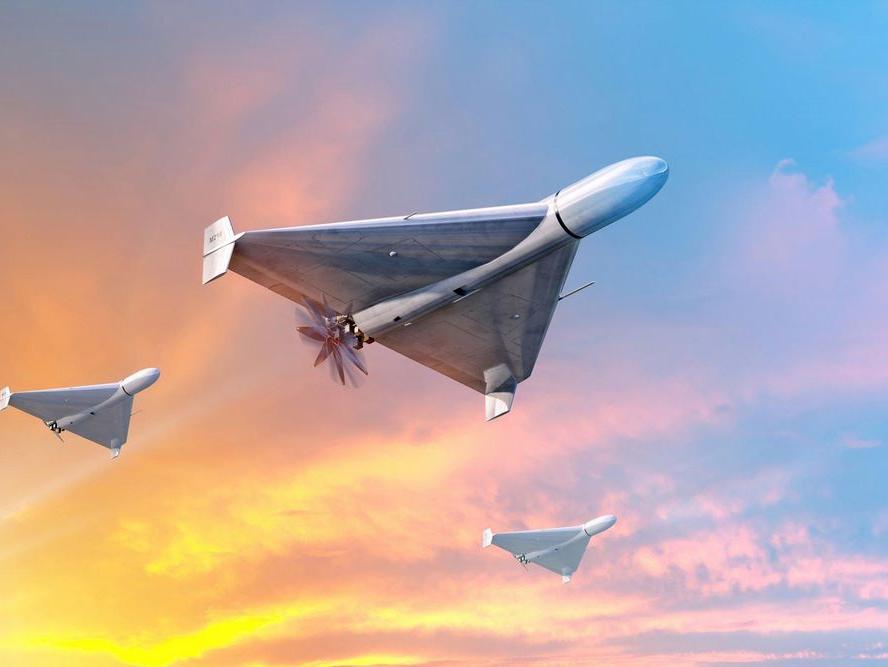
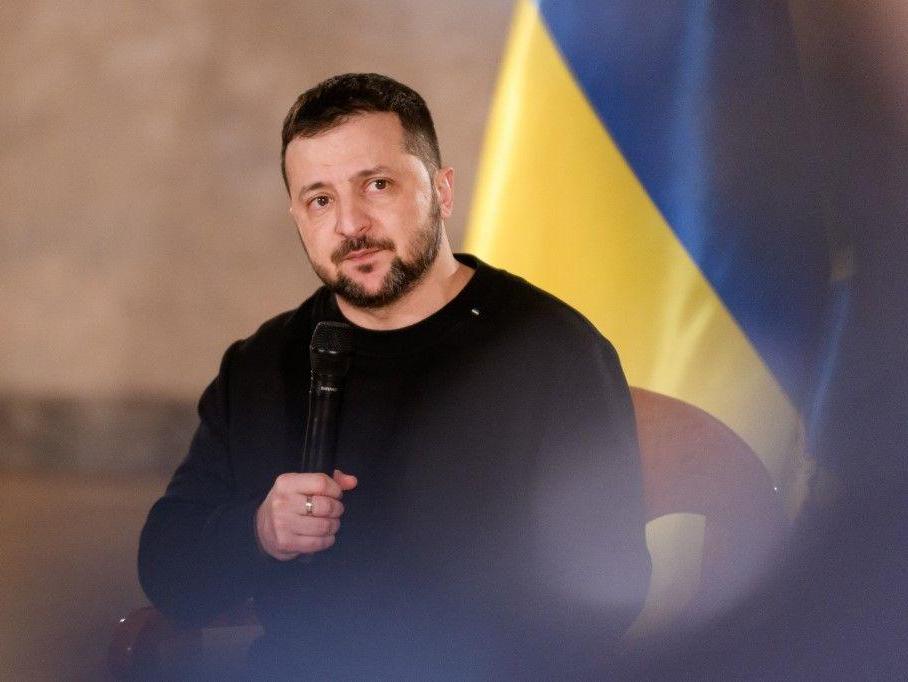
Sports
Pat Cummins' participation in the 2026 T20 World Cup has been cast into serious doubt, with Australia head coach Andrew McDonald describing the captain's availability as 'quite grey at the moment' . Cummins will undergo a check-in scan to assess his back condition following his withdrawal from the remainder of the Ashes series due to a persistent lumbar stress reaction
. The tournament begins Feb. 7, 2026, in India and Sri Lanka, with Australia's opening match against Ireland scheduled for Feb. 11 in Colombo
.
McDonald emphasized that the decision to rest Cummins was made to protect his long-term health after achieving the goal of securing the Ashes with a 3-0 series lead . 'We've now won the series and that was the goal,' McDonald stated, adding that further risk to Cummins' fitness would be unacceptable
. Cummins had returned from injury to deliver a match-winning performance in Adelaide, taking six wickets across both innings
.
Meanwhile, England faces mounting scrutiny following their comprehensive 3-0 Ashes defeat, marking their 18th consecutive Test loss in Australia since 2010-11 . Head coach Brendon McCullum addressed growing calls for his resignation, stating his future is 'not really up to me' and emphasizing that such decisions rest with the England and Wales Cricket Board
. Former England batsman Geoffrey Boycott has publicly called for McCullum to resign, advocating for fresh leadership
.
The England team is also under investigation for alleged excessive alcohol consumption during their mid-series break in Noosa, Queensland . ECB managing director Rob Key confirmed the investigation but stated initial findings suggest players behaved responsibly, though he warned that any evidence of over-indulgence would be 'completely unacceptable'
. Key had previously issued informal warnings to captain Harry Brook and Jacob Bethell after a social media clip showed them drinking before a match against New Zealand
.
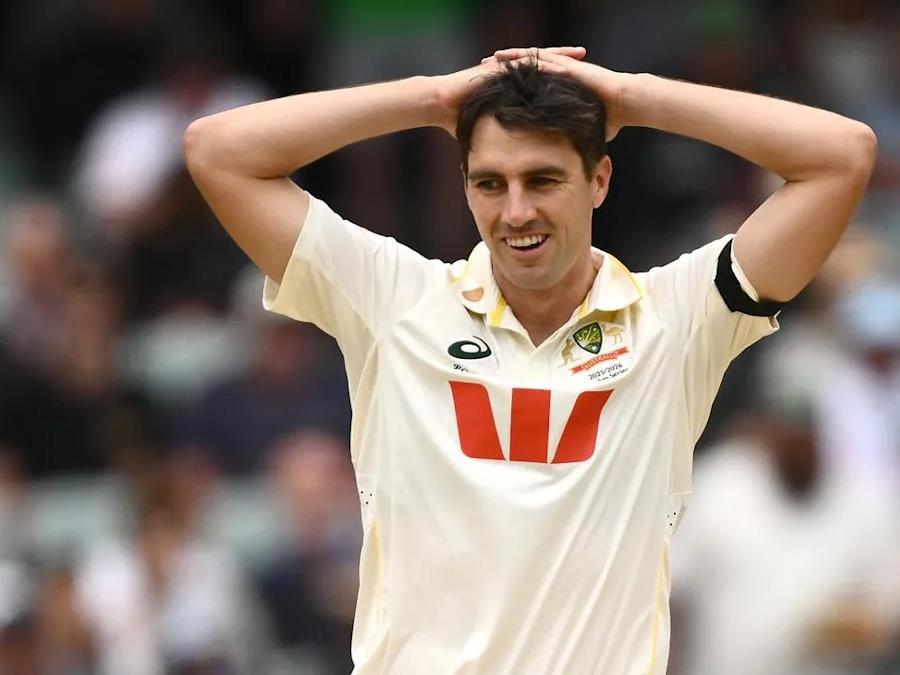
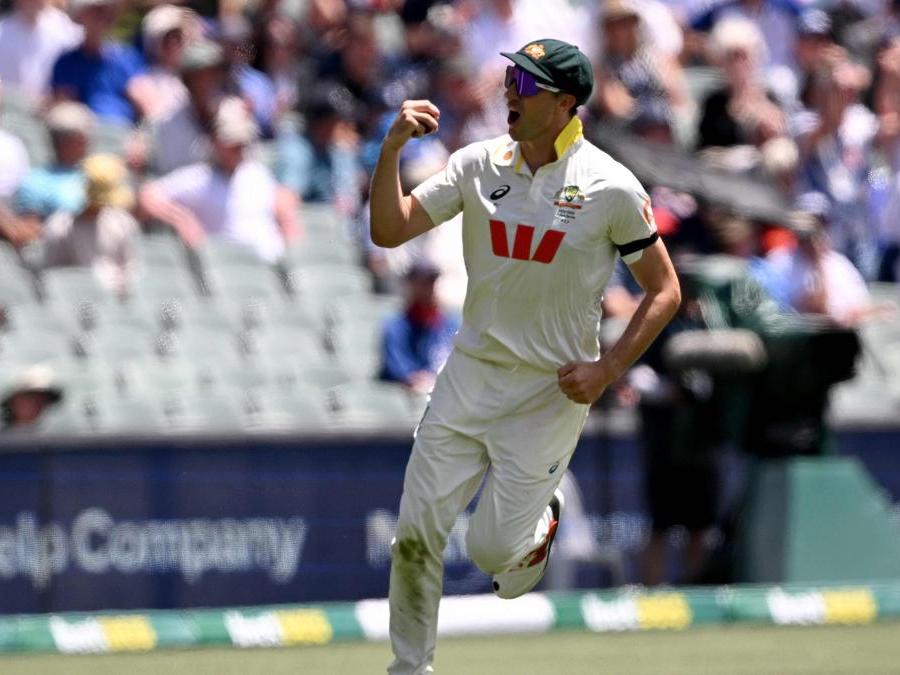
Finance / Health / Business
Novo Nordisk's stock soared over 9% Dec. 23 after the U.S. Food and Drug Administration approved the oral tablet version of its weight-loss drug Wegovy, making it the first FDA-approved oral GLP-1 medication specifically for chronic weight management . The approval gives the Danish pharmaceutical giant a crucial first-mover advantage over rival Eli Lilly, whose competing oral drug orforglipron is not expected to receive FDA approval until March 2026
.
Clinical trials demonstrated that patients taking oral Wegovy lost an average of 16.6% of their body weight over 64 weeks, significantly outperforming Eli Lilly's orforglipron, which showed 12.4% weight loss over 72 weeks . The drug will launch in January 2026 at $149 per month and will be available through pharmacies, select telehealth providers, and the Trump administration's direct-to-consumer platform TrumpRx
.
The approval triggered a broader rally in European markets, with the pan-European STOXX 600 index reaching a record high of 588.81 points, driven primarily by healthcare sector gains of 1.4% . The Swiss SMI also hit a record high, rising 0.60% to 13,242.80 points
. Healthcare stocks led the charge across Europe, with companies such as Roche and Novartis each gaining over 1%
.
The FDA approval represents a potential turnaround for Novo Nordisk after a challenging year that saw its stock decline approximately 47% year-to-date . The company faced supply shortages, increased competition from Eli Lilly's injectable Zepbound, workforce reductions of 9,000 jobs, and leadership changes including a CEO replacement in August
. HSBC analyst Rajesh Kumar described the clinical data as 'very impressive,' noting superior efficacy and tolerability compared to competitors
.
Analysts project the global obesity drug market could reach $150 billion by the early 2030s, with oral medications potentially capturing about 25% of this market due to their convenience advantages over injectable alternatives . The approval positions Novo Nordisk to capitalize on what experts call the 'New Year's weight-loss resolution' market and rebuild its competitive position against Eli Lilly, which achieved a $1 trillion market cap in November
.
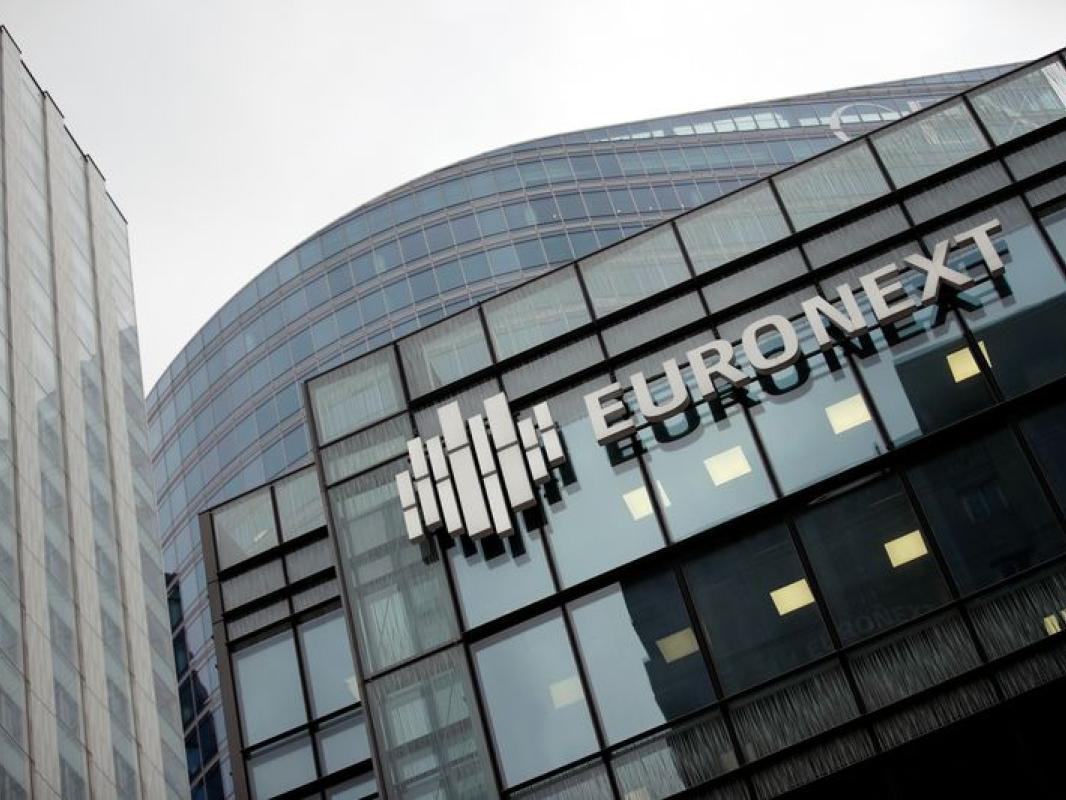
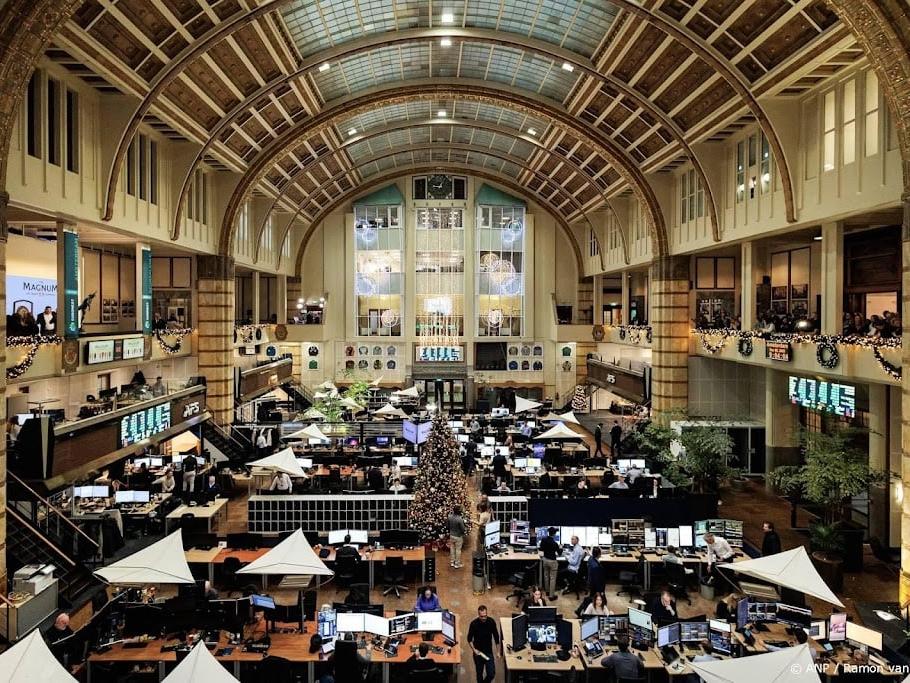
Sports
Indian all-rounder Deepti Sharma has achieved a historic milestone by becoming the world's number-one T20 bowler in the latest ICC rankings released Dec. 23 . With 737 rating points, Sharma narrowly surpassed Australia's Annabel Sutherland (736 points) following her performance in the first T20I against Sri Lanka, where she took one wicket for 20 runs
. This marks Sharma's first time reaching the top spot in any ICC ranking, highlighting her consistent performance with 148 wickets in 130 T20I matches at an average of 18.99
.
In a separate historic achievement, Indonesian fast bowler Gede Priandana made T20I history by becoming the first player to take five wickets in a single over during a match against Cambodia in Bali . The 28-year-old's feat included a hat-trick and helped dismiss Cambodia for 107, falling 60 runs short of their target of 168
. Priandana joins only two other cricketers who have achieved this rare accomplishment in any format of cricket
.
Meanwhile, the fallout from Shubman Gill's exclusion from India's T20 World Cup squad continues to generate discussion. Former India batter Sanjay Manjrekar criticized the omission while acknowledging Gill's poor form, noting the batsman managed only one half-century (47) in 15 recent T20I matches . Gill will now focus on domestic cricket, playing for Punjab in the Vijay Hazare Trophy with matches against Sikkim and Goa scheduled for January 2026
. The exclusion reflects the team management's broader effort to eliminate 'star culture,' with Axar Patel named as deputy captain for the upcoming T20 World Cup
.
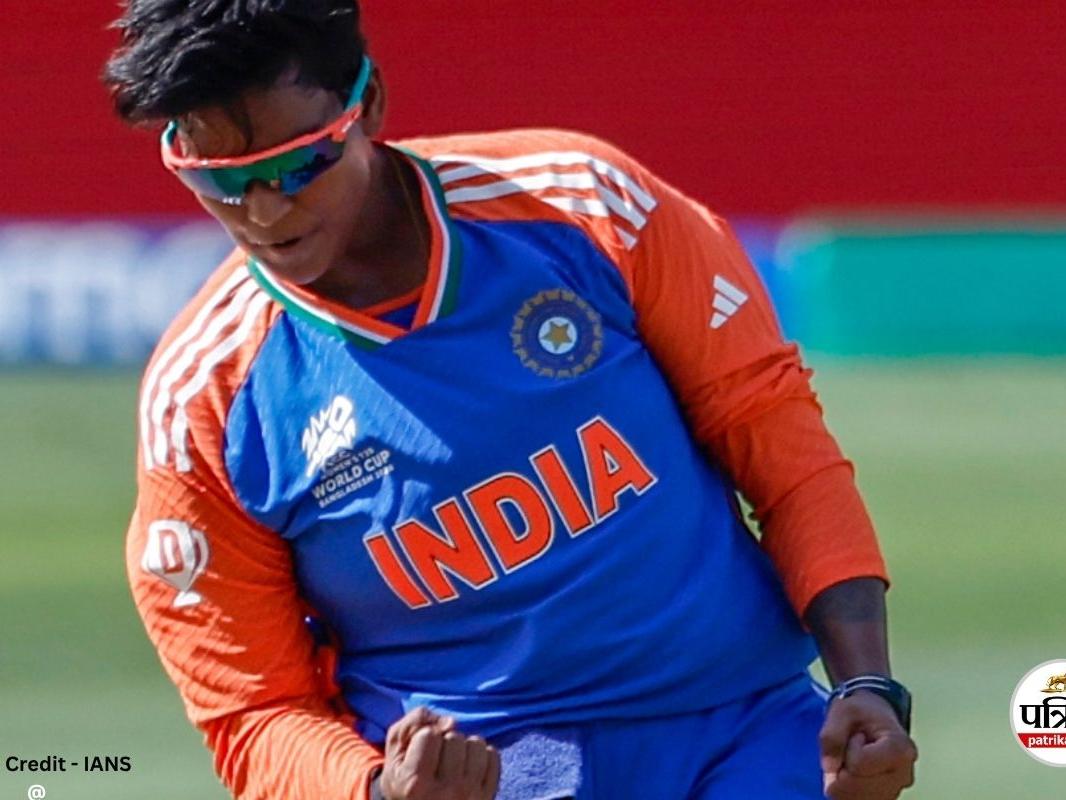
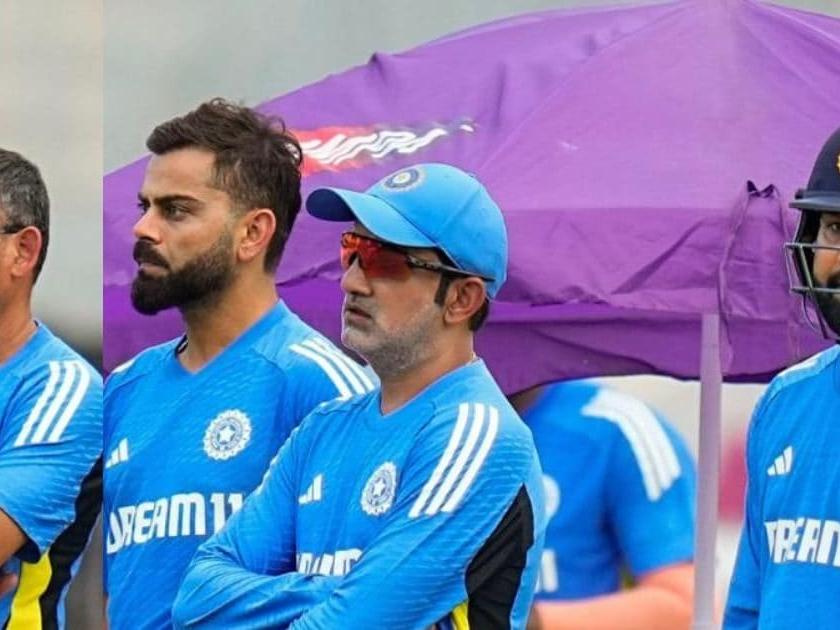


Wanna look deeper?
Try increasing to the latest 7 days or Asking in the Chat
Politics
The U.S. Supreme Court on Dec. 23 blocked President Donald Trump's attempt to deploy National Guard troops to Chicago, delivering a rare legal setback to the administration's immigration enforcement strategy . In a 6-3 unsigned order, the Court ruled that the Trump administration failed to demonstrate sufficient legal authority to federalize the National Guard in Illinois to protect Immigration and Customs Enforcement (ICE) agents
.
The majority stated that "at this preliminary stage, the government has failed to identify a source of authority that would allow the military to execute the laws in Illinois" . The decision upheld a lower court injunction issued by U.S. District Judge April Perry in October that had blocked the deployment of approximately 300-500 National Guard troops to the Chicago area
.
Justices Clarence Thomas, Samuel Alito, and Neil Gorsuch dissented from the decision . Justice Alito argued that the president's inherent constitutional authority to protect federal officers and property should suffice
.
The Trump administration had argued that federal agents faced "coordinated and prolonged violent resistance" and cited incidents of gunfire and vehicle attacks at an ICE facility in Broadview, Illinois . However, Illinois state officials and Chicago's mayor contested these claims, arguing that local law enforcement had managed protests without major incidents
.
The Supreme Court's decision affects broader legal challenges to Trump's strategy of deploying military forces in Democratic-led cities including Los Angeles, Memphis, Portland, and Washington D.C. as part of his immigration enforcement crackdown . The ruling may strengthen legal arguments against deploying troops in other cities
.


Politics / International
The Trump administration has launched a comprehensive assault on the U.S. asylum system, with Immigration and Customs Enforcement (ICE) attorneys requesting immigration judges nationwide to dismiss thousands of active asylum cases without reviewing their merits, according to internal government documents obtained by CBS News . The strategy involves so-called 'pretermit' motions that would nullify pending asylum applications, enabling deportation without appeal to third countries such as Guatemala, Honduras, Ecuador, and Uganda
.
Immigration lawyers argue the strategy aims to dismantle the asylum system by forcing applicants to withdraw their cases under threat of deportation to unfamiliar countries . 'If you want to apply for asylum, you're being forced to do so in a country you've never been to... You just have to give up and go back to your country or go somewhere else,' Houston-based immigration attorney Paúl Pirela told France 24
.
Simultaneously, the administration has maintained its enhanced voluntary departure incentive program, offering $3,000 plus free flights to undocumented immigrants who self-deport through the CBP Home app by Dec. 31 . The program has drawn both bipartisan support and controversy, with Democratic presidential candidate Jason Palmer and Republican strategist Aaron Evans both endorsing the policy as fiscally responsible, noting that traditional deportations cost approximately $17,000 per person
.
The administration's broader immigration crackdown has included canceling Temporary Protected Status for over 1 million immigrants from 11 countries—Afghanistan, Burma, Cameroon, Haiti, Honduras, Nepal, Nicaragua, Syria, Venezuela, and Yemen—marking the most rapid mass revocation of legal immigration status in U.S. history . The largest affected groups are Venezuelans (605,000) and Haitians (330,000)
.
A leaked 60 Minutes report that was abruptly pulled from broadcast in December revealed harrowing testimonies from migrants deported to El Salvador's high-security CECOT prison, describing beatings, torture, sexual abuse, and broken bones . 'When you get there, you already know you're in hell. You don't need anyone to tell you,' one Venezuelan migrant stated
. CBS News defended pulling the report, citing the Trump administration's refusal to participate and a need for stronger inclusion of the administration's perspective
.


Politics
The U.S. Department of Justice released nearly 30,000 additional pages of Jeffrey Epstein-related documents Dec. 23, marking another significant disclosure in the ongoing investigation . The files contain extensive references to President Donald Trump, including confirmation from a Jan. 7, 2020, federal prosecutor's email that he flew on Epstein's private jet at least eight times between 1993 and 1996, with Ghislaine Maxwell present on at least four of those flights
. One flight reportedly included only Trump, Epstein, and a 20-year-old woman whose identity was redacted
.
Among the most controversial materials released was a handwritten letter allegedly from Epstein to convicted sex offender Larry Nassar, claiming Trump 'shares our love for young, nubile girls' and enjoyed 'grabbing' young women . However, the DOJ immediately confirmed the letter was fraudulent, citing multiple inconsistencies: it was postmarked three days after Epstein's death on Aug. 10, 2019, bore a Virginia postmark instead of New York where Epstein was imprisoned, and lacked proper prison documentation
. The department labeled many claims about Trump as 'false and sensationalist,' stating they were submitted to the FBI just before the 2020 election and lacked credibility
.
The DOJ's handling of the release has drawn significant criticism for procedural issues and perceived bias. Documents were initially published, then temporarily withdrawn from public access before being republished, raising questions about transparency . Critics have noted the department's defensive tone regarding Trump contrasts sharply with the neutral language used for other figures such as Bill Clinton in previous releases
. The department also faced criticism for excessive redactions beyond legal requirements and missing the congressionally mandated deadline for full disclosure
.
The release followed political pressure from within Trump's own Republican Party, leading to the passage of the Epstein Files Transparency Act mandating full disclosure . Trump, who initially opposed the release, later supported the legislation after facing strong congressional backing
. Critics, including Senate Minority Leader Chuck Schumer, continue to demand transparency regarding 10 unidentified 'co-conspirators' mentioned in FBI emails and question why no additional prosecutions have followed
. Ghislaine Maxwell remains the only person convicted in connection with Epstein's crimes
.


International
The death toll from the Mexican Navy aircraft crash near Galveston, Texas, has been officially confirmed at five people, including a 2-year-old burn patient who was being transported for medical treatment . The King Air ANX 1209 crashed Dec. 22 during a humanitarian mission coordinated with the Michou and Mau Foundation, which specializes in transporting Mexican children with severe burns to U.S. hospitals for treatment
.
Of the eight people aboard - four naval crew members and four civilians - two survived and were rescued by local residents, including a police officer and yacht captain who quickly arrived at the crash scene . One person remains missing despite ongoing search operations by the U.S. Coast Guard using dive teams, drones, and patrol units
. The aircraft had departed from Mérida International Airport in Yucatán at 18:46 GMT and lost contact at 21:01 GMT over Galveston Bay near Scholes International Airport
. Dense fog with visibility reduced to approximately 800 meters was reported at the time of the crash, which may have contributed to the accident
.
Mexican authorities are coordinating with the Mexican Consulate General in Houston to provide support to victims' families, while an investigation into the cause of the accident continues . The Mexican Navy has expressed condolences to the families of the deceased and pledged to conduct a thorough investigation in collaboration with U.S. authorities
.


British comedian and actor Russell Brand faces two additional sexual offense charges filed by the Metropolitan Police on Dec. 23, bringing the total number of allegations against him to seven across six women . The new charges include one count of rape and one count of sexual assault involving two different women, with the alleged rape occurring between Feb. 7 and March 1, 2009, and the sexual assault between Aug. 31 and Dec. 1, 2009
.
These charges add to five previous charges filed in April 2025, which included two counts of rape, one count of indecent assault, and two counts of sexual assault involving four other women . The earlier allegations stem from incidents between 1999 and 2005, including claims of rape during a Labour Party conference in Bournemouth and oral rape in men's toilets at a television facility
.
Brand, 50, has pleaded not guilty to all previous charges and is scheduled to appear at Westminster Magistrates' Court on Jan. 20, 2026, to address the new allegations . A trial for the original five charges is set to begin at Southwark Crown Court on June 16, 2026, and is expected to last four to five weeks
.
The investigation began in September 2023 following joint reports by The Sunday Times, The Times, and Channel 4's Dispatches program . Detective Chief Inspector Tariq Farooqi confirmed that all complainants are receiving support from specially trained officers and urged anyone with information to come forward
.
Brand has denied all allegations, stating in social media posts that he has 'never been a rapist' and 'never engaged in non-consensual activities,' while acknowledging he was 'a fool' and 'an idiot' in his youth . The Crown Prosecution Service authorized the new charges following the ongoing investigation
.


Entertainment
Video footage of the fatal crash that killed Call of Duty co-creator Vince Zampella has emerged and been widely circulated online, showing the Ferrari 296 GTS crashing into a concrete barrier and bursting into flames . The graphic footage, captured by bystanders and witnesses, shows the red Ferrari speeding out of a tunnel before losing control and crashing on the Angeles Crest Highway Dec. 21
. One source described the video as containing "graphic footage" that has been labeled as potentially shocking
.
The 55-year-old gaming industry pioneer died at the scene after being trapped in the burning vehicle, while his passenger was ejected from the car and died later from injuries . The California Highway Patrol confirmed the crash occurred around 12:45 p.m. in the San Gabriel Mountains north of Los Angeles
. The cause of the accident remains under investigation, though the road is reportedly known for illegal car stunts
.
Electronic Arts, which acquired Zampella's studio Respawn Entertainment in 2017, released statements calling him a "visionary creator" whose influence shaped modern interactive entertainment . Zampella co-founded Infinity Ward in 2002 and helped create Call of Duty in 2003, which has over 100 million monthly active players
. He also led development of the record-breaking Battlefield 6 and oversaw creation of Titanfall, Apex Legends, and the Star Wars Jedi series
. Zampella is survived by three children from his marriage to Brigitte Zampella, who filed for divorce in 2015
.


Politics / International
U.S. President Donald Trump announced Dec. 23 that America will permanently retain all seized Venezuelan oil tankers and their cargo, declaring 'We will keep it. It may be used for strategic reserves. We are also keeping the ships' . Trump confirmed the U.S. Coast Guard is actively pursuing a third oil tanker, the Bella 1, in international waters near Venezuela
. The vessel sent over 75 distress signals while being pursued approximately 460-500 kilometers northeast of Antigua and Barbuda
. This follows the seizure of two previous tankers - the Centuries and Skipper - carrying a combined 3.8 million barrels of crude oil
.
Trump escalated his threats against Venezuelan President Nicolás Maduro, reiterating 'If he makes it hard, it will be the last time he can do it' and suggesting it would be 'smart' for Maduro to resign . The president announced plans to build two new warships as part of a 'Golden Fleet' modernization project, describing them as 'the fastest, largest, and deadliest ever built' with construction beginning 'almost immediately' and delivery expected in two and a half years
. Trump emphasized U.S. naval superiority, claiming 'We have the biggest navy we've ever had, and by far the biggest we've ever had in South America'
.
The U.S. has deployed its largest military presence in the Caribbean in three decades, including approximately 15,000 troops, the USS Gerald R. Ford aircraft carrier, and the first deployment of F-35A Lightning II fighter jets to the region . Images released by U.S. Southern Command showed approximately 2,200 Marines conducting live-fire drills and tactical maneuvers
. Since September, U.S. operations have resulted in at least 104 deaths across 28 attacks on suspected drug trafficking vessels, with Venezuela reporting these as 'executions without trial'
.
International condemnation intensified, with Russian Foreign Minister Sergei Lavrov expressing 'firm solidarity' with Venezuela and warning of regional destabilization . China condemned the seizures as violations of international law and opposed U.S. 'unilateral hegemony'
. Venezuela has called for an emergency UN Security Council session and sent diplomatic notes to 194 countries condemning what it calls U.S. 'piracy and aggression'
. In response to Trump's threats, Maduro criticized the U.S. president, saying he would be 'better occupied' addressing internal U.S. problems rather than threatening Venezuela
.


Finance / Economy
The S&P 500 reached a new all-time high of 6,909.79 on Dec. 23, marking its 38th record closing high of the year, as U.S. stock markets surged following stronger-than-expected third-quarter GDP growth of 4.3% that significantly exceeded forecasts of 3.3% . The Dow Jones gained 0.16% to 48,442.41, while the Nasdaq rose 0.57% to 23,561.84, as investors embraced the robust economic data showing the fastest growth pace in two years
.
The GDP surge was driven primarily by consumer spending increases of 3.5%, along with growth in exports and government expenditures, according to the U.S. Commerce Department . Despite initial market concerns that strong economic performance might prompt the Federal Reserve to delay interest rate cuts, investors ultimately viewed the data positively as it reinforced confidence in sustained corporate earnings growth through 2026
.
Precious metals continued their record-breaking rally alongside equities, with gold reaching new highs above $4,497-$4,530 per ounce and silver surpassing $70 per ounce for the first time, while copper hit record levels at $12,159.50 per ton driven by demand from energy transition and digital infrastructure . The CME FedWatch tool indicates markets still expect two rate cuts by the end of 2026, with probability rising to 33%, though expectations for a January 2026 cut dropped to just 15.5%
.
President Trump expressed concerns on Truth Social, urging the new Federal Reserve Chair not to cut rates 'without reason' amid strong market performance, while Treasury Secretary Scott Bessent suggested the Fed reconsider its 2% inflation target . Notable individual stock movements included Nvidia surging 3% on optimism over potential H200 chip shipments to China by February 2026, while Novo Nordisk jumped over 8% after FDA approval for the world's first oral version of its obesity drug Wegovy
.


International / Politics
Venezuela's National Assembly passed emergency legislation Dec. 23 criminalizing "piracy, blockades, and other international illegal acts" with penalties up to 20 years in prison and fines reaching €1 million ($6.5 million), directly responding to recent U.S. seizures of Venezuelan oil tankers . The law, which now awaits President Nicolás Maduro's signature, specifically targets activities that hinder navigation and commerce and mandates the executive branch to establish protections for businesses operating with Venezuela
.
The legislation comes as tensions reached new heights at the Dec. 23 UN Security Council emergency meeting, where Venezuela's Ambassador Samuel Moncada accused the U.S. of conducting "the largest extortion in history" and seeking to impose colonial control by turning back the clock "200 years" . U.S. Ambassador Mike Waltz defended the naval blockade as necessary to cut funding to the "Cartel de los Soles," which Washington designates as a terrorist organization allegedly led by Maduro, though experts question whether it represents a formal cartel or merely corrupt networks
.
Russia and China delivered sharp criticism of U.S. actions, with Russian Ambassador Vassily Nebenzia calling the blockade "flagrant aggression" that violates "all fundamental norms of international law" and warning of "catastrophic consequences" . China's representative Sun Lei condemned U.S. "unilateralism and intimidation," with both nations characterizing American behavior as "cowboy conduct"
. The U.S. has now seized multiple Venezuelan oil tankers, including the Skipper and Centuries, with reports indicating around 40 tankers currently anchored near Venezuela's coast
.
President Maduro claimed "overwhelming support" from the UN Security Council and labeled U.S. vessel seizures as "piracy," vowing that "no one will defeat Venezuela" . The escalation has resulted in over 100 deaths from U.S. military operations since September, with Trump threatening to extend operations to Venezuelan territory
.


Sports
Egypt's national football team faces a pivotal Group B clash against South Africa on Friday, Dec. 27, at 5:00 PM Cairo time at Adrar Stadium in Agadir, Morocco . Both teams enter the match level on three points after opening victories, with Egypt defeating Zimbabwe 2-1 and South Africa beating Angola 2-1, making this encounter crucial for securing qualification to the Round of 16
.
The match carries significant historical weight, as Egypt seeks revenge for their humiliating 1-0 elimination by South Africa in the 2019 Africa Cup of Nations Round of 16, when Percy Tau scored the decisive goal . The head-to-head record favors Egypt, who won 1-0 in the 1996 group stage and claimed a 2-0 victory in the 1998 final in Burkina Faso to secure their fourth continental title
. South Africa's only triumph in the rivalry came in that painful 2019 quarterfinal defeat
.
Coach Hossam Hassan and his technical staff are urgently addressing the team's finishing problems after missing several clear scoring opportunities against Zimbabwe . A senior source revealed that Hassan is focusing on improving offensive effectiveness and better exploiting scoring chances ahead of the crucial clash, as the team ultimately relied on late goals from Omar Marmoush and Mohamed Salah to secure victory
. International media continues to praise Salah's decisive 91st-minute winner, with outlets describing him as the 'man of big moments' and highlighting his partnership with Marmoush in turning matches around
.


International / Politics
European leaders have rallied in unprecedented unity behind Denmark following President Trump's appointment of Louisiana Governor Jeff Landry as Special Envoy to Greenland, marking a significant escalation in the diplomatic crisis. French President Emmanuel Macron led the European response, declaring that 'Greenland belongs to its people' and expressing 'full solidarity with Copenhagen' . French Foreign Minister Jean-Noël Barrot reinforced this stance, emphasizing that Greenland is a 'European territory' and belongs to the Greenlanders
. EU Commission President Ursula von der Leyen and Spanish Prime Minister Pedro Sánchez both reaffirmed that 'territorial integrity and sovereignty are foundational principles of international law'
.
The crisis has reached alarming new heights, with Denmark's defense intelligence agency labeling the United States as a 'potential security threat' for the first time . Danish Foreign Minister Lars Løkke Rasmussen firmly rejected any U.S. demands, stating that Denmark will not comply with transferring Greenland to the United States and establishing what he called a 'firm red line'
. Trump has refused to rule out the use of military force to acquire Greenland
, prompting analysts to warn that a U.S. invasion would collapse NATO and end Trump's prospects for international legitimacy
.
Greenland's Prime Minister Múti Fredriksen expressed deep sorrow over Trump's characterization of Greenland as merely a security issue, emphasizing that it diminishes the nation's 'rich history, strong culture, and vibrant democracy' . He thanked international partners for their clear support of Greenland's sovereignty and democratic institutions, stating 'This confirms that we are not alone'
. Trump continues to justify his position by claiming that Russian and Chinese naval vessels are present along Greenland's coasts and that Denmark lacks sufficient military capability to defend the territory
.


Politics / International / Business
President Donald Trump expanded his 'Golden Fleet' initiative Dec. 22 by announcing a major international partnership with South Korean defense giant Hanwha, which will invest over $5 billion in Philadelphia's Philly Shipyard to construct frigates for the U.S. Navy . Speaking from his Mar-a-Lago estate, Trump described Hanwha as 'a great company' and emphasized that the once-closed shipyard would reopen to work with both the Navy and private firms
. The partnership represents a significant development in Trump's broader 'MASGA' (Making America Shipbuilding Great Again) initiative
.
The announcement provided new details about the controversial 'Trump-class' warships, with the first vessel now identified as either USS Defiant or 'Dreadnought,' depending on the source . Trump claimed the 30,000-40,000 ton vessels would be '100 times more powerful' than existing warships and equipped with hypersonic weapons, electromagnetic railguns, cruise missiles, and laser systems
. The president emphasized his personal involvement in the design process, citing his 'aesthetic sensibilities' and criticizing past naval designs as unattractive
.
However, the ambitious timeline and costs face significant skepticism from defense experts. Bryan Clark from the Hudson Institute noted that new shipyards needed for accelerated construction would take about 10 years to deliver, while Mark Cancian of the Center for Strategic and International Studies estimated costs at $10-12 billion per ship . The project also breaks longstanding naval tradition by naming warships after a sitting president, sparking debate over the politicization of military assets
. Critics point to recent naval failures, including the canceled Constellation-class frigate program and delays in the Columbia-class submarine project, as evidence of systemic shipbuilding challenges
.


International / Politics
Ukraine escalated its asymmetric warfare campaign against Russia Dec. 21-24, conducting covert operations that included infiltrating Russia's Lipetsk Air Base and destroying two aircraft - a Su-27 and Su-30 - causing an estimated $100 million in damage . On the same day, Ukrainian operatives assassinated Russian General Sergey Salvarov, head of the Armed Forces' combat training, with a car bomb placed under his vehicle in Moscow
. This marked the latest in a series of high-profile assassinations targeting Russian military leadership in the capital.
The covert operations occurred amid Russia's continued massive aerial bombardment of Ukraine, with over 650 drones and more than 30 missiles striking 13 Ukrainian regions Dec. 23-24, killing at least three civilians including a 4-year-old child in Zhytomyr Oblast . The attacks caused emergency power outages across the country and targeted energy infrastructure
. In response to Ukrainian drone strikes on Russian territory, Moscow's air defense systems shot down multiple Ukrainian drones targeting the capital
. Russian forces also intensified ground attacks, striking Zaporizhzhia with guided aerial bombs that injured two people and damaged residential buildings
. Ukrainian military officials confirmed the withdrawal from Siversk in Donetsk Oblast, stating the move was necessary 'to save soldiers' lives and maintain combat effectiveness' amid overwhelming Russian numerical superiority
.


Business / Technology
European car sales extended their winning streak in November 2025, marking the fifth consecutive month of year-on-year growth as electric vehicles fundamentally reshaped the automotive landscape . Total new vehicle registrations across the EU, UK, and European Free Trade Association rose 2.4% to 1.08 million units, with electric and hybrid vehicles now commanding 65.6% of the market—a dramatic increase from 56% in August 2024
.
The most striking development was the emergence of Chinese automaker BYD as a major European player, with sales surging 221.8% year-on-year to reach 21,133 units in November and capturing a 2% market share . This growth trajectory continued a trend since the European Automobile Manufacturers Association began tracking BYD's data in July 2025, with the company selling 159,869 vehicles across Europe from January to November
.
In stark contrast, Tesla faced mounting challenges as European sales declined 11.8% to 22,801 units, reducing its market share from 2.5% to 2.1% year-on-year . The decline was attributed to intensifying competition from both European and Chinese manufacturers, as well as reputational damage linked to CEO Elon Musk's political activities earlier in 2025, which reportedly alienated a significant portion of Tesla's customer base
.
Battery electric vehicles reached remarkable penetration rates across the region, capturing 21% market share in the EU, 26% in the UK, and an extraordinary 98% in Norway . The growth was particularly pronounced in major markets including Germany, Italy, and Spain, where BEV registrations increased substantially
. Plug-in hybrid vehicles led the growth surge with a 38.4% increase, while conventional hybrids rose 4.2% and BEVs jumped 44.1%
.
Traditional automakers showed mixed performance, with Volkswagen and Renault posting gains of 4.1% and 3% respectively, while Stellantis declined 2.7% . However, Volkswagen Group made a significant strategic reversal, terminating its European electric vehicle direct-to-consumer sales strategy and reverting to traditional dealer networks due to dealer pressure over low profitability and pricing inflexibility
.
The transformation of European automotive preferences was evident in the sharp decline of internal combustion engines, with gasoline vehicles dropping 18.6% year-to-date to a 27% market share, while diesel vehicles fell 24.4% to just 9% of the market . Despite the positive momentum, the European Automobile Manufacturers Association noted that overall sales volumes remain significantly below pre-pandemic levels, with automakers continuing to face challenges from Chinese competition, U.S. import tariffs, and regulatory pressures
.


International / Politics
Russia escalated its aerial warfare tactics Dec. 23 with a coordinated assault using 635 drones and 38 missiles across 13-21 Ukrainian regions, employing upgraded Shahed drones equipped with mesh networking for continuous signal transmission and cameras for enhanced navigation . The attack killed at least three people, including a four-year-old child in Zhytomyr Oblast, and left western regions like Rivne, Ternopil, and Khmelnytskyi almost completely without electricity
.
Ukrainian military analysts identified a deliberate shift in Russian strategy, with the assault primarily targeting western Ukraine to stretch air defense capabilities and exploit vulnerabilities through routes including the Chernobyl exclusion zone and Cherkasy Oblast . General Nikolai Malomuzh, former head of Ukraine's Foreign Intelligence Service, noted that Russia has surpassed 600 Shahed drones per attack and may launch up to 1,000 daily, using sequential targeting patterns—eastern, central, then western regions—to complicate interception efforts
.
The timing proved particularly provocative, occurring during ongoing U.S.-led peace negotiations in Miami and just before Christmas, prompting Ukrainian President Volodymyr Zelenskyy to condemn it as demonstrating Russia's refusal to stop killing . The assault forced Ukraine's nuclear power plants to reduce generation due to attacks on power supply systems, violating nuclear safety standards according to acting Energy Minister Oleksiy Nechayev
. DTEK, Ukraine's largest private energy provider, reported this marked the seventh major strike on its facilities since October and the 220th attack since Russia's full-scale invasion began
.


Sports
Pat Cummins' participation in the 2026 T20 World Cup has been cast into serious doubt, with Australia head coach Andrew McDonald describing the captain's availability as 'quite grey at the moment' . Cummins will undergo a check-in scan to assess his back condition following his withdrawal from the remainder of the Ashes series due to a persistent lumbar stress reaction
. The tournament begins Feb. 7, 2026, in India and Sri Lanka, with Australia's opening match against Ireland scheduled for Feb. 11 in Colombo
.
McDonald emphasized that the decision to rest Cummins was made to protect his long-term health after achieving the goal of securing the Ashes with a 3-0 series lead . 'We've now won the series and that was the goal,' McDonald stated, adding that further risk to Cummins' fitness would be unacceptable
. Cummins had returned from injury to deliver a match-winning performance in Adelaide, taking six wickets across both innings
.
Meanwhile, England faces mounting scrutiny following their comprehensive 3-0 Ashes defeat, marking their 18th consecutive Test loss in Australia since 2010-11 . Head coach Brendon McCullum addressed growing calls for his resignation, stating his future is 'not really up to me' and emphasizing that such decisions rest with the England and Wales Cricket Board
. Former England batsman Geoffrey Boycott has publicly called for McCullum to resign, advocating for fresh leadership
.
The England team is also under investigation for alleged excessive alcohol consumption during their mid-series break in Noosa, Queensland . ECB managing director Rob Key confirmed the investigation but stated initial findings suggest players behaved responsibly, though he warned that any evidence of over-indulgence would be 'completely unacceptable'
. Key had previously issued informal warnings to captain Harry Brook and Jacob Bethell after a social media clip showed them drinking before a match against New Zealand
.


Finance / Health / Business
Novo Nordisk's stock soared over 9% Dec. 23 after the U.S. Food and Drug Administration approved the oral tablet version of its weight-loss drug Wegovy, making it the first FDA-approved oral GLP-1 medication specifically for chronic weight management . The approval gives the Danish pharmaceutical giant a crucial first-mover advantage over rival Eli Lilly, whose competing oral drug orforglipron is not expected to receive FDA approval until March 2026
.
Clinical trials demonstrated that patients taking oral Wegovy lost an average of 16.6% of their body weight over 64 weeks, significantly outperforming Eli Lilly's orforglipron, which showed 12.4% weight loss over 72 weeks . The drug will launch in January 2026 at $149 per month and will be available through pharmacies, select telehealth providers, and the Trump administration's direct-to-consumer platform TrumpRx
.
The approval triggered a broader rally in European markets, with the pan-European STOXX 600 index reaching a record high of 588.81 points, driven primarily by healthcare sector gains of 1.4% . The Swiss SMI also hit a record high, rising 0.60% to 13,242.80 points
. Healthcare stocks led the charge across Europe, with companies such as Roche and Novartis each gaining over 1%
.
The FDA approval represents a potential turnaround for Novo Nordisk after a challenging year that saw its stock decline approximately 47% year-to-date . The company faced supply shortages, increased competition from Eli Lilly's injectable Zepbound, workforce reductions of 9,000 jobs, and leadership changes including a CEO replacement in August
. HSBC analyst Rajesh Kumar described the clinical data as 'very impressive,' noting superior efficacy and tolerability compared to competitors
.
Analysts project the global obesity drug market could reach $150 billion by the early 2030s, with oral medications potentially capturing about 25% of this market due to their convenience advantages over injectable alternatives . The approval positions Novo Nordisk to capitalize on what experts call the 'New Year's weight-loss resolution' market and rebuild its competitive position against Eli Lilly, which achieved a $1 trillion market cap in November
.


Sports
Indian all-rounder Deepti Sharma has achieved a historic milestone by becoming the world's number-one T20 bowler in the latest ICC rankings released Dec. 23 . With 737 rating points, Sharma narrowly surpassed Australia's Annabel Sutherland (736 points) following her performance in the first T20I against Sri Lanka, where she took one wicket for 20 runs
. This marks Sharma's first time reaching the top spot in any ICC ranking, highlighting her consistent performance with 148 wickets in 130 T20I matches at an average of 18.99
.
In a separate historic achievement, Indonesian fast bowler Gede Priandana made T20I history by becoming the first player to take five wickets in a single over during a match against Cambodia in Bali . The 28-year-old's feat included a hat-trick and helped dismiss Cambodia for 107, falling 60 runs short of their target of 168
. Priandana joins only two other cricketers who have achieved this rare accomplishment in any format of cricket
.
Meanwhile, the fallout from Shubman Gill's exclusion from India's T20 World Cup squad continues to generate discussion. Former India batter Sanjay Manjrekar criticized the omission while acknowledging Gill's poor form, noting the batsman managed only one half-century (47) in 15 recent T20I matches . Gill will now focus on domestic cricket, playing for Punjab in the Vijay Hazare Trophy with matches against Sikkim and Goa scheduled for January 2026
. The exclusion reflects the team management's broader effort to eliminate 'star culture,' with Axar Patel named as deputy captain for the upcoming T20 World Cup
.


Wanna look deeper?
Try increasing to the latest 7 days or Asking in the Chat